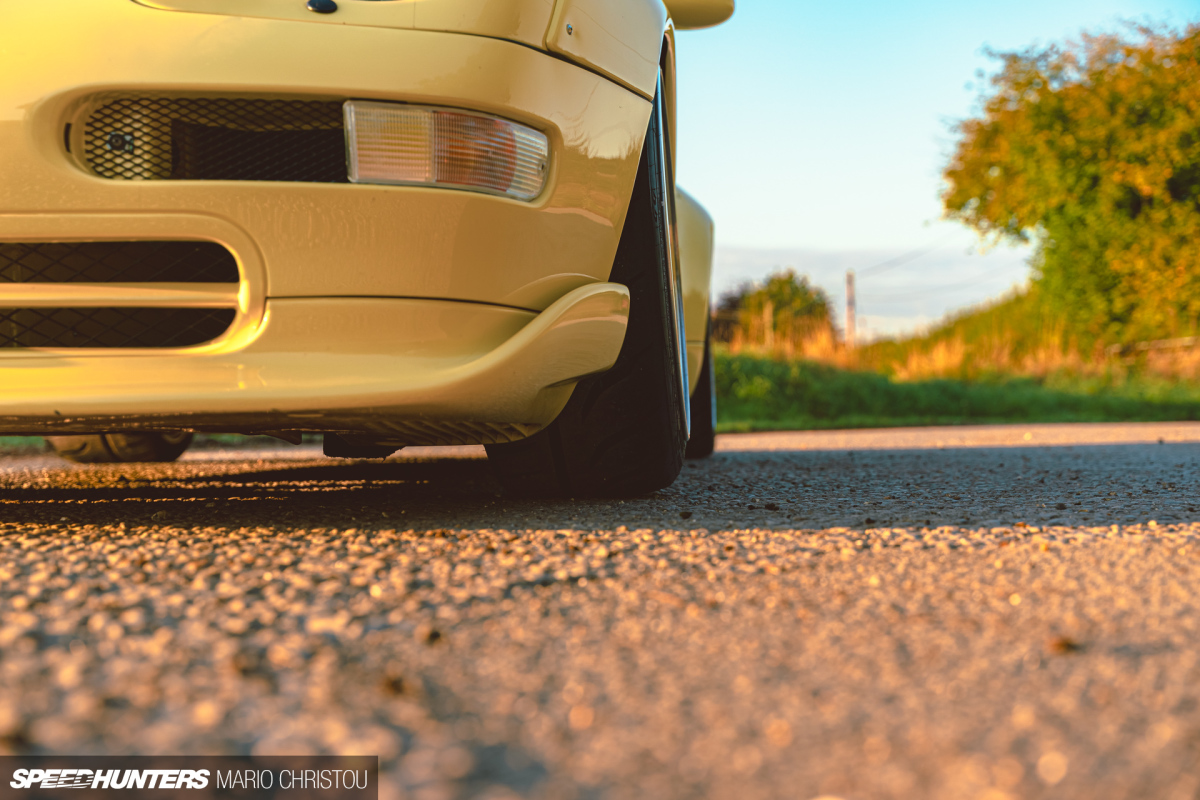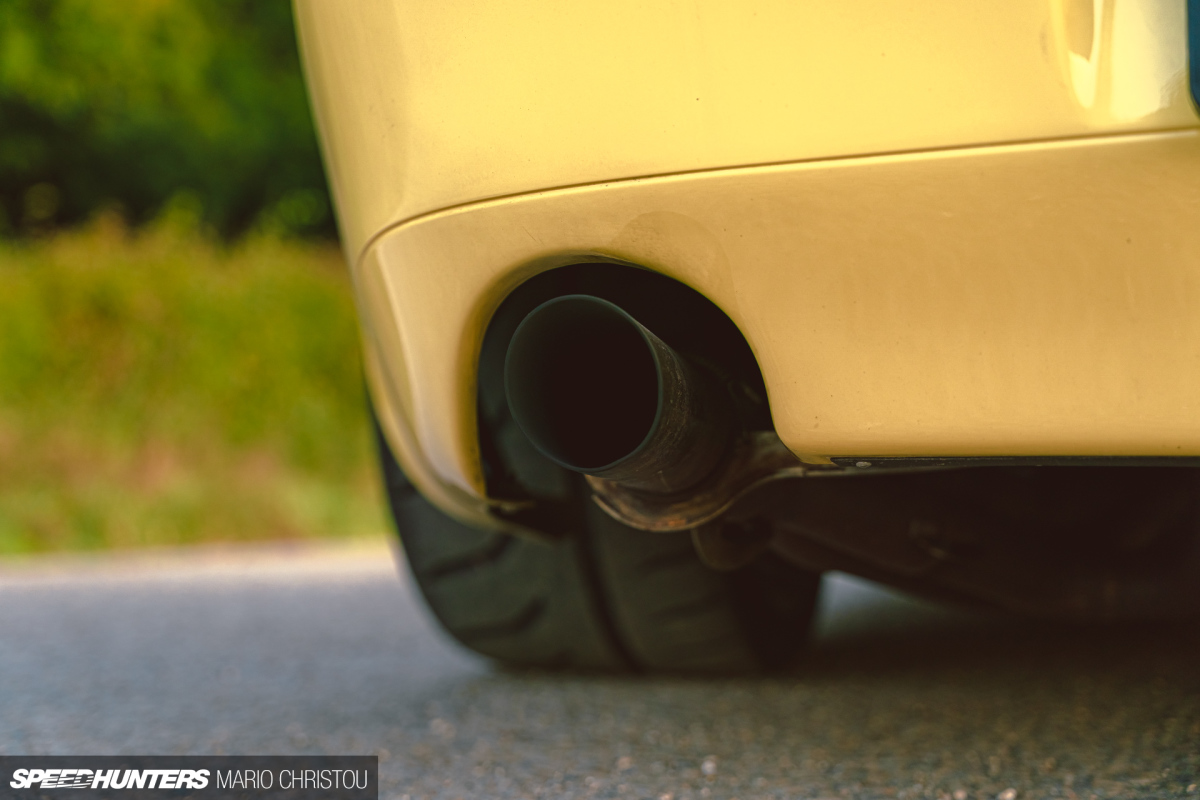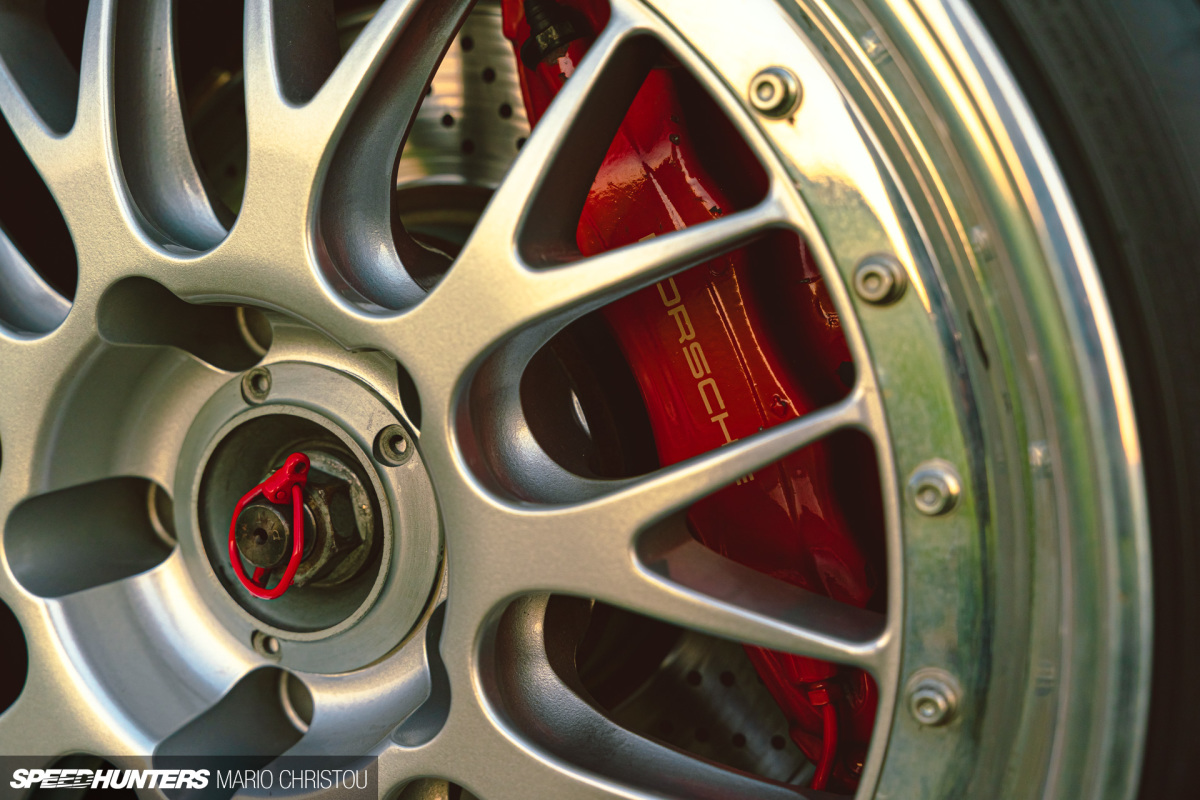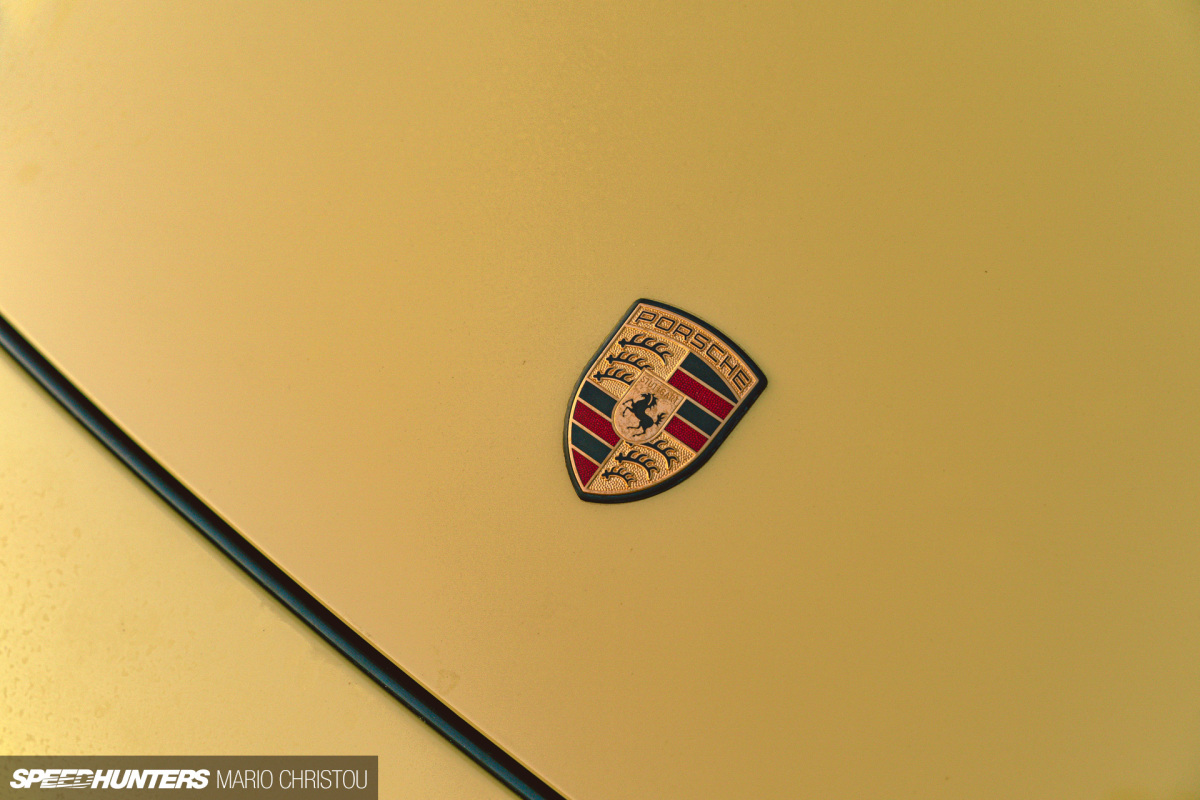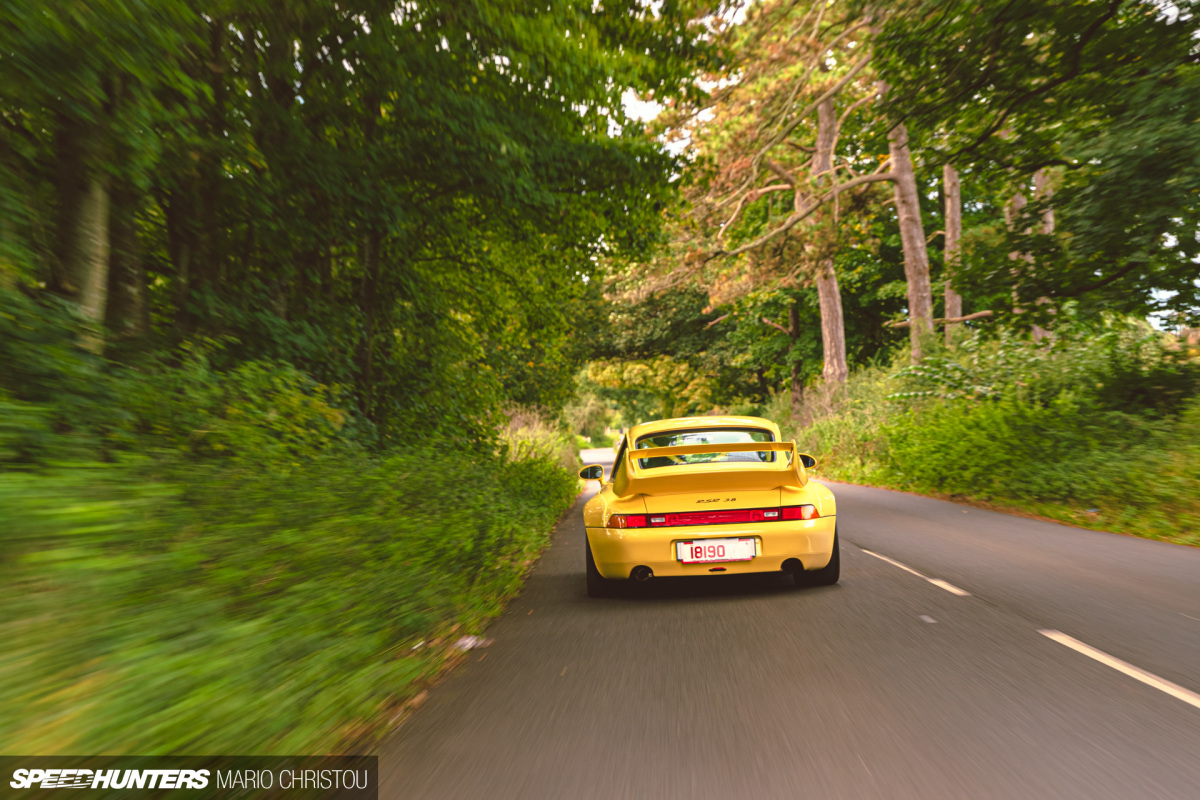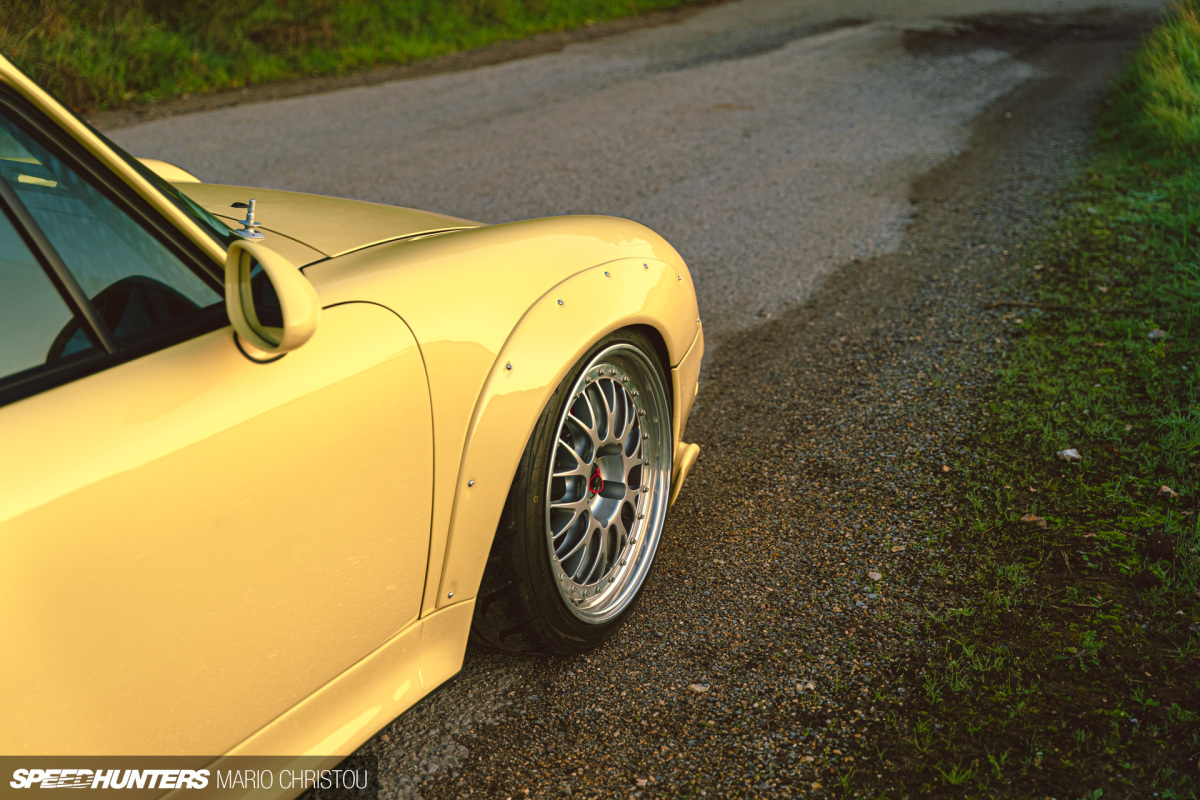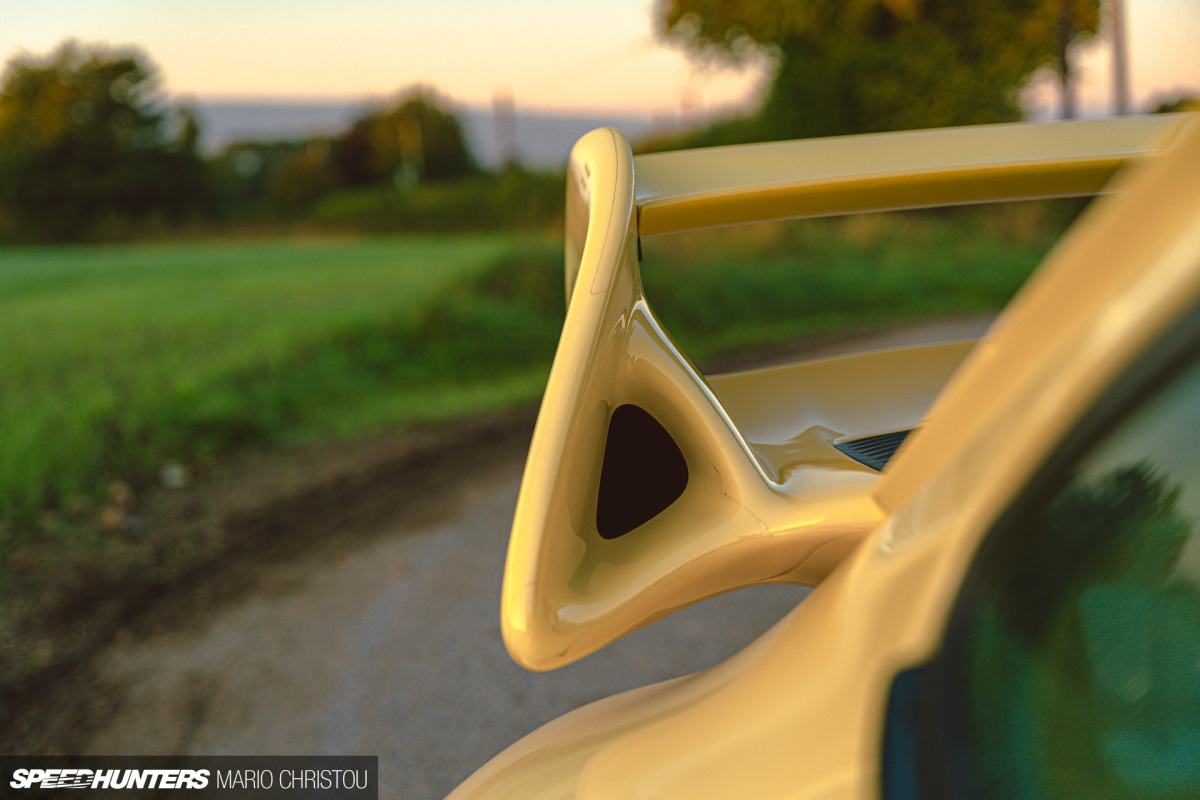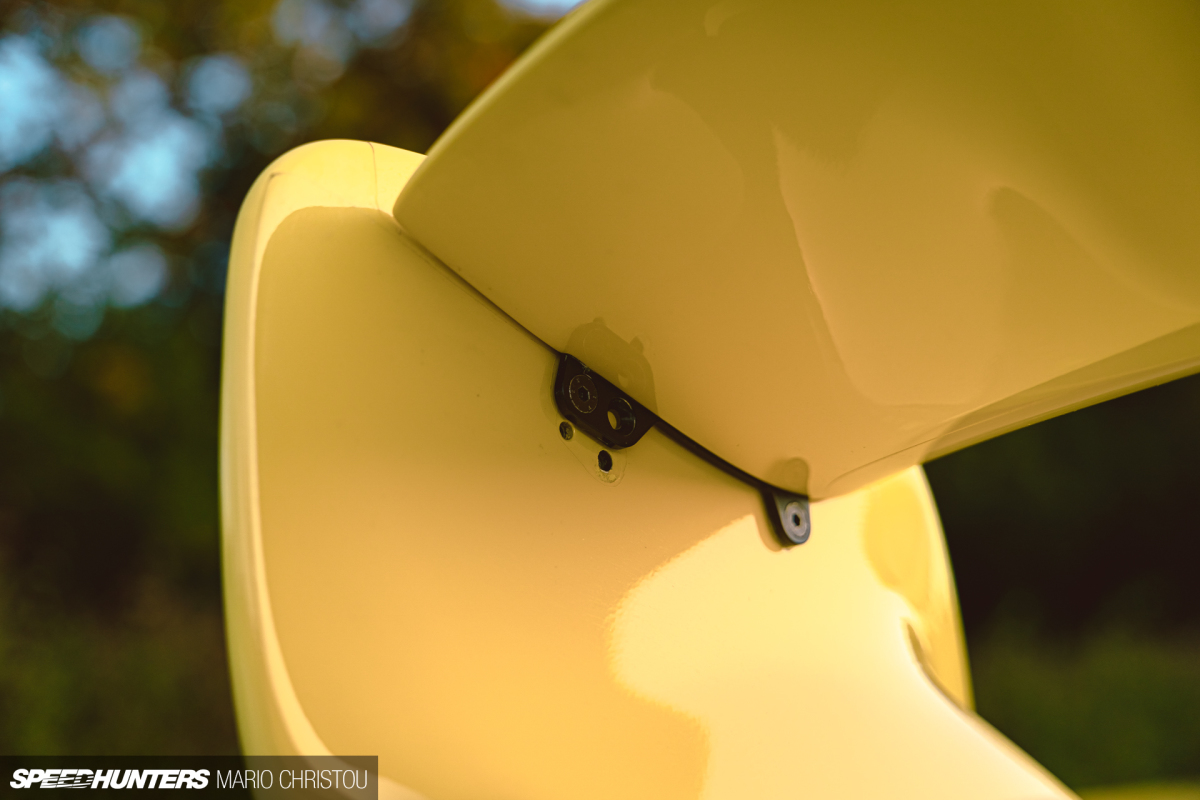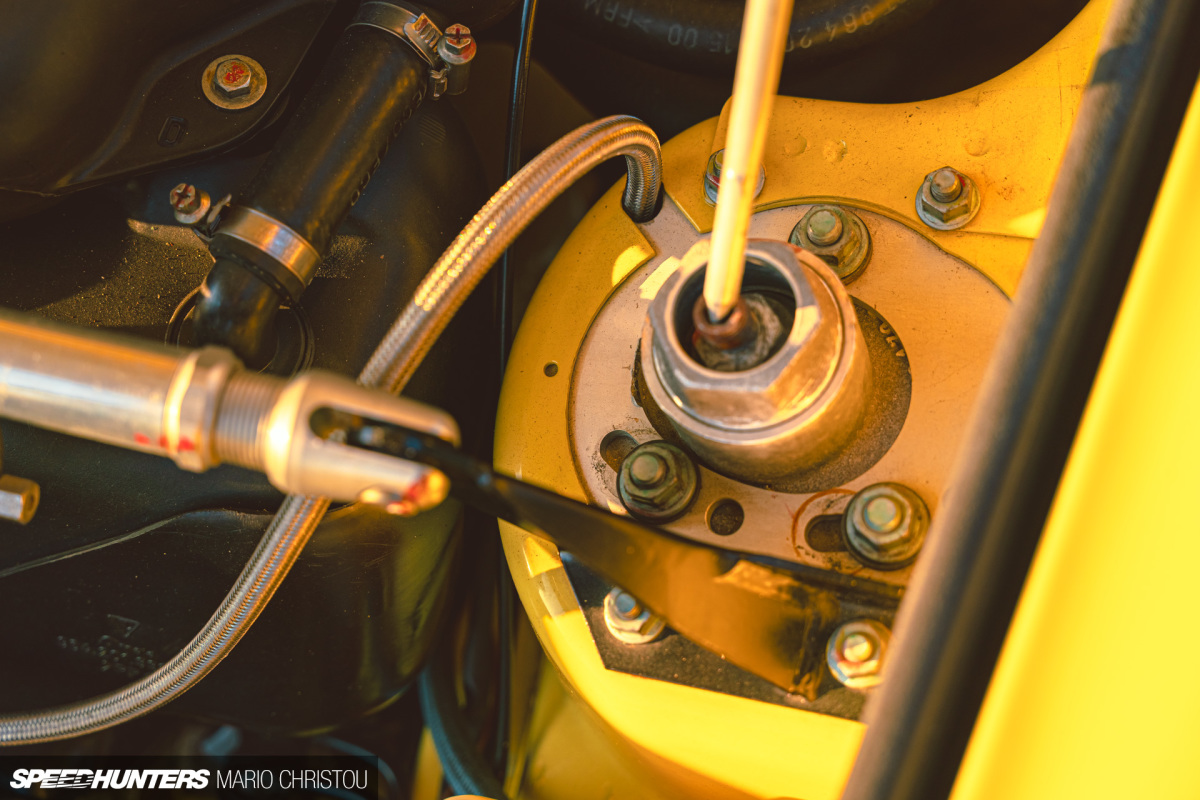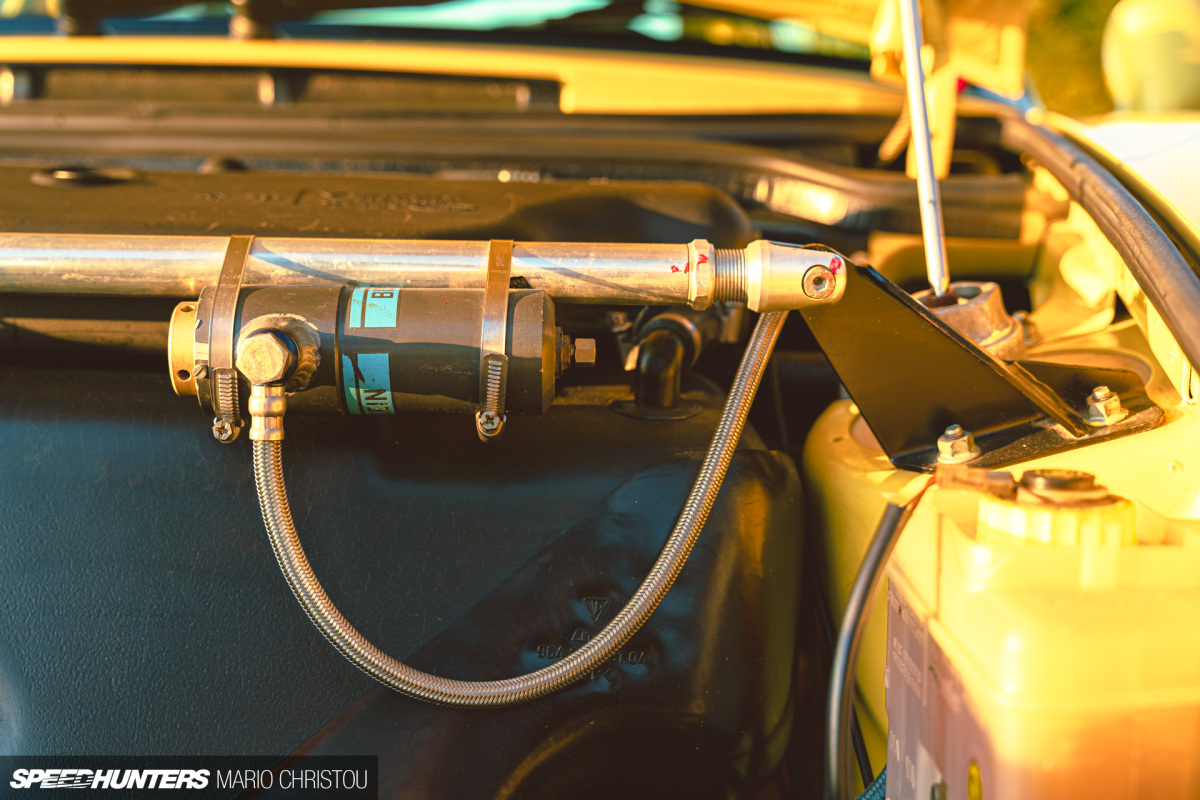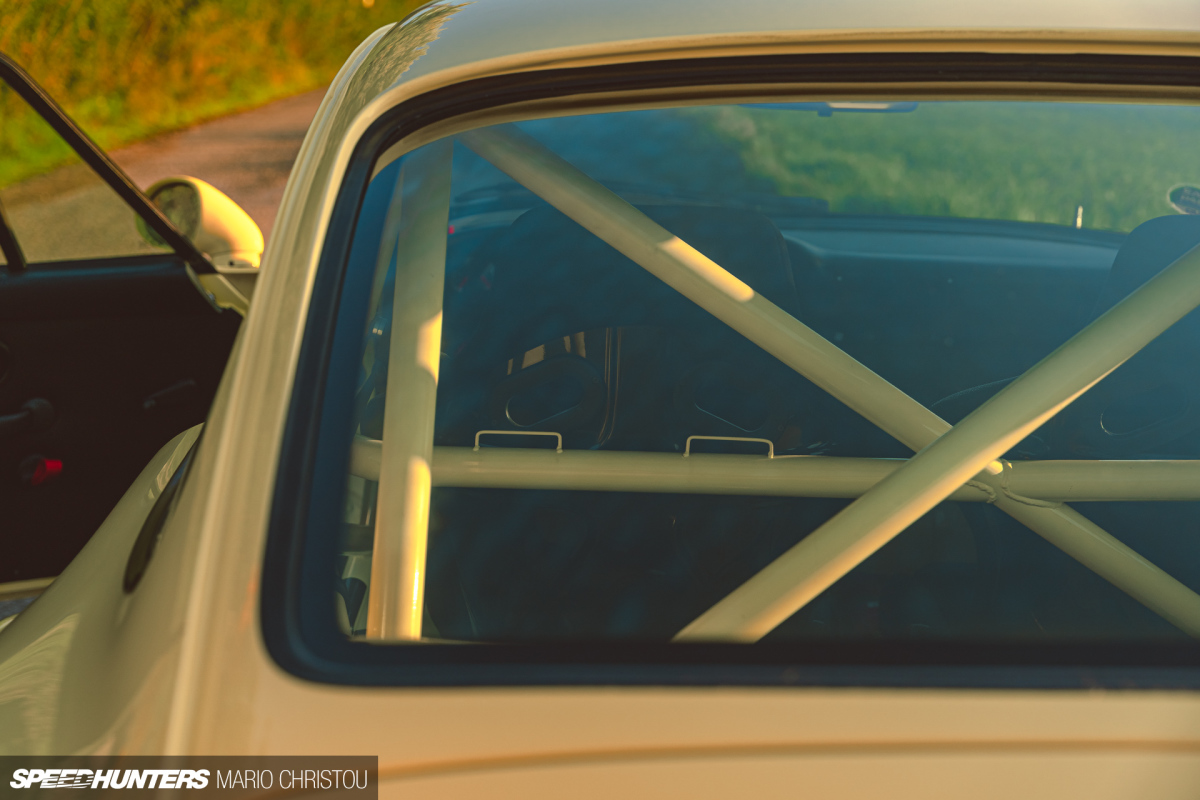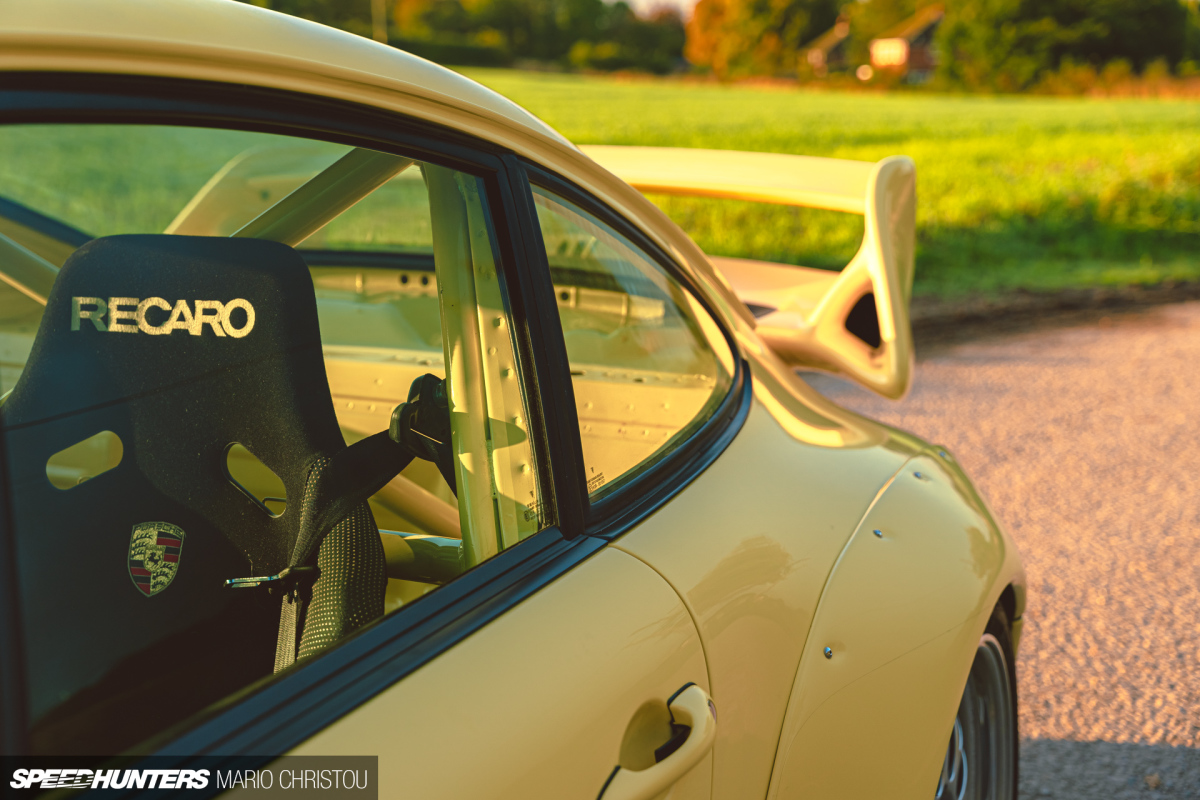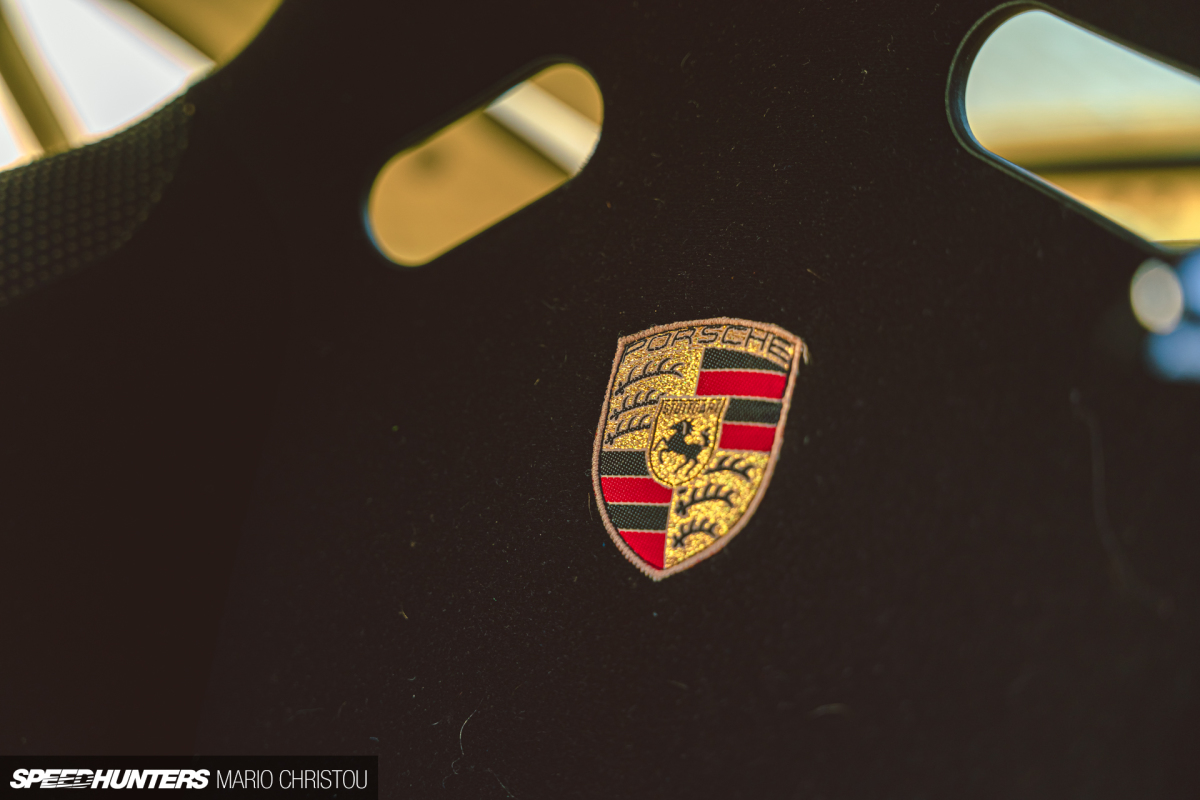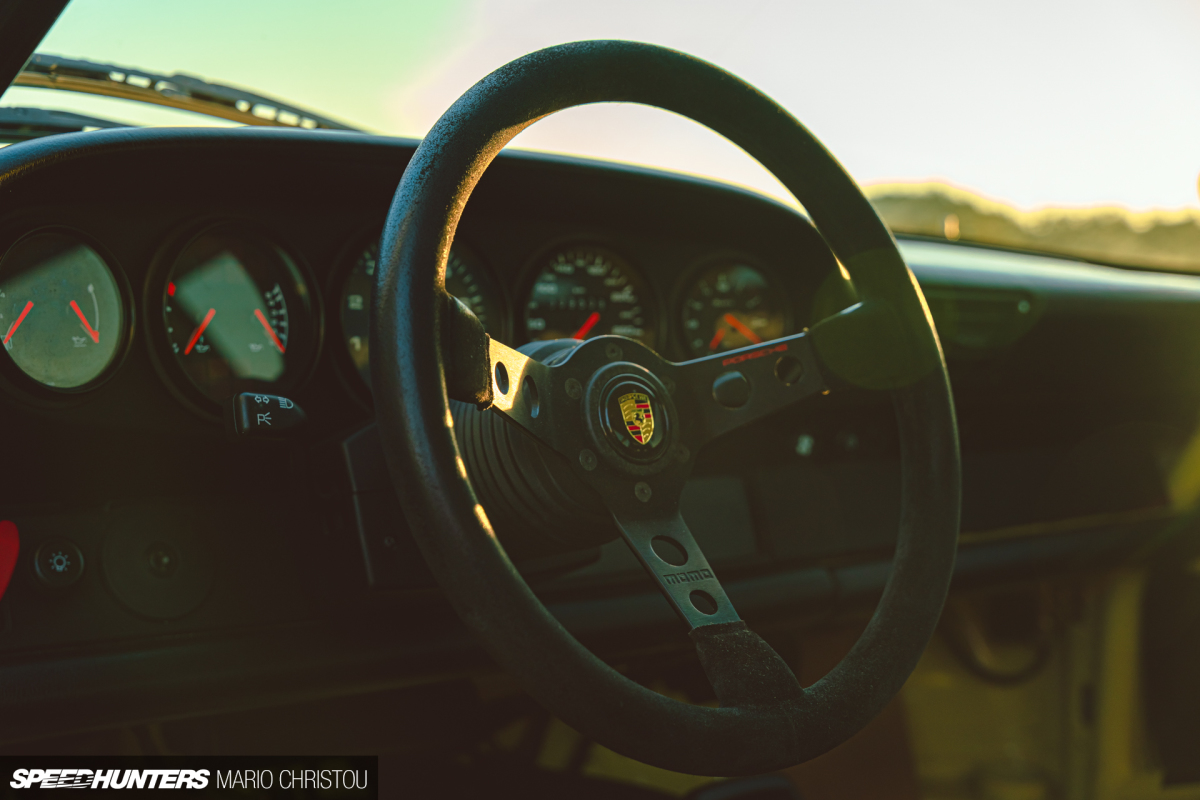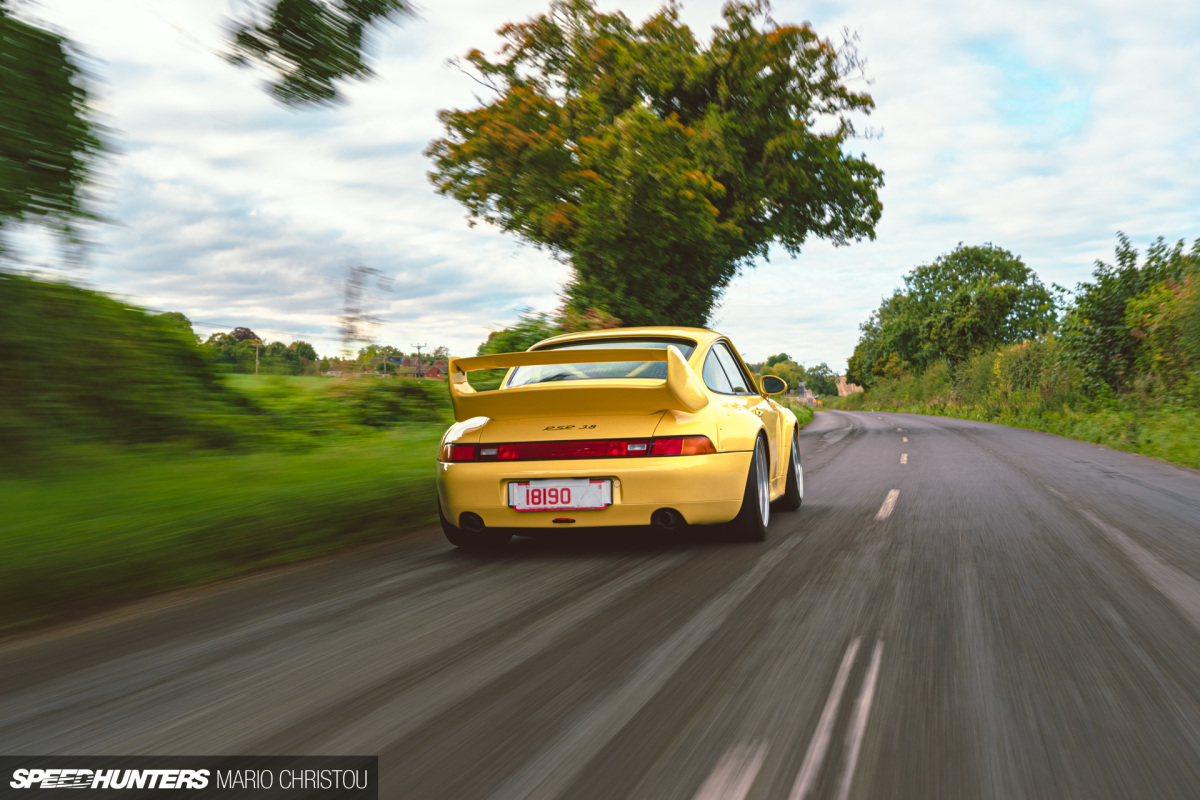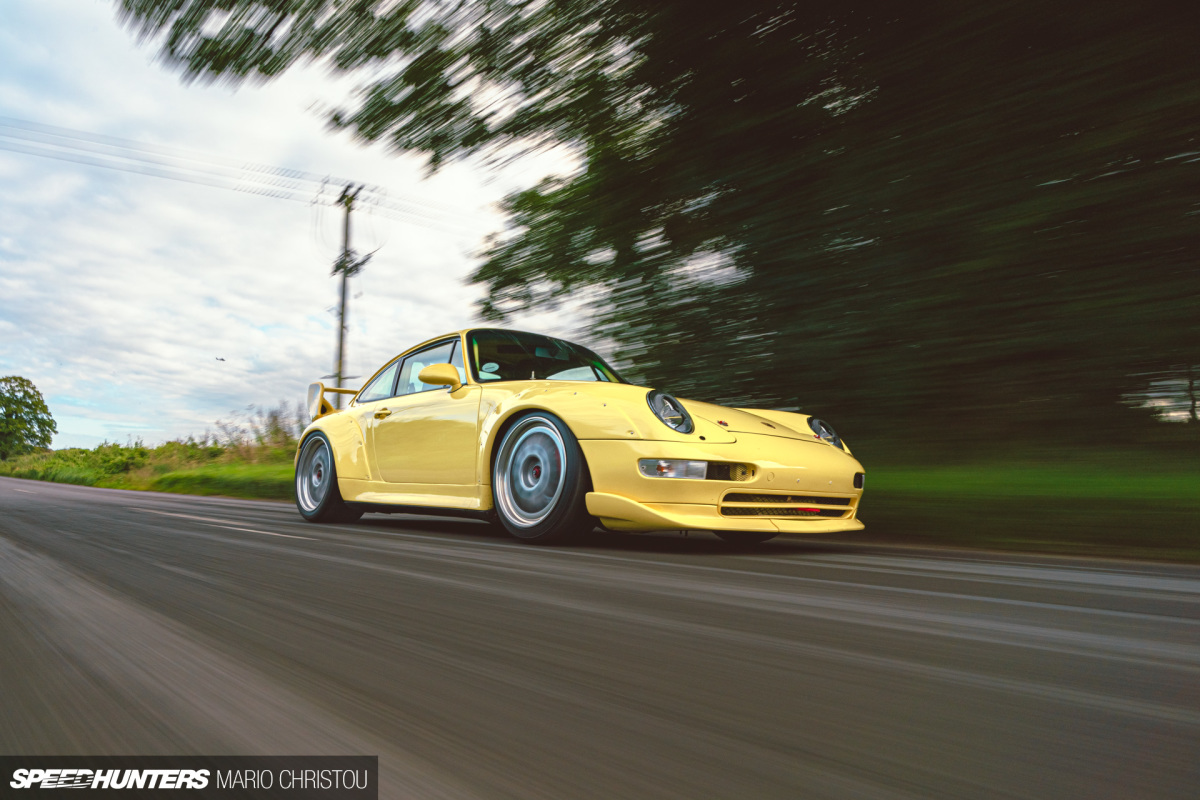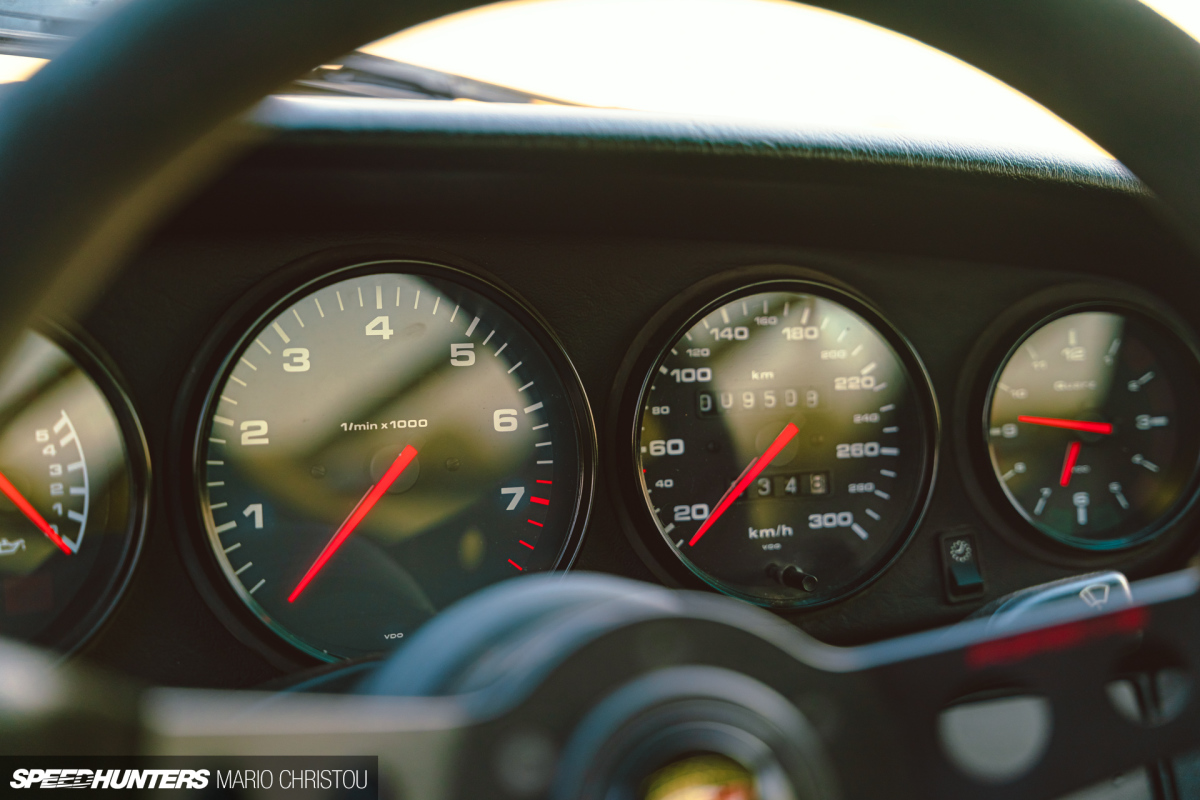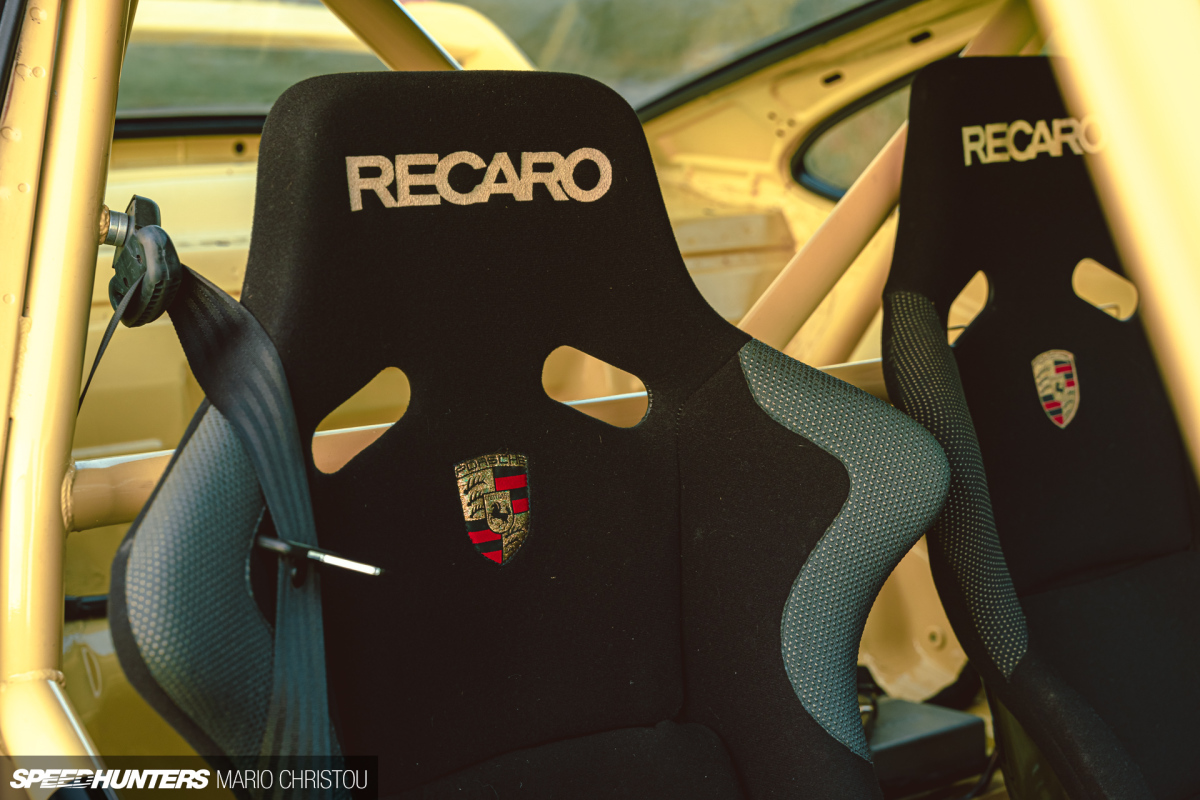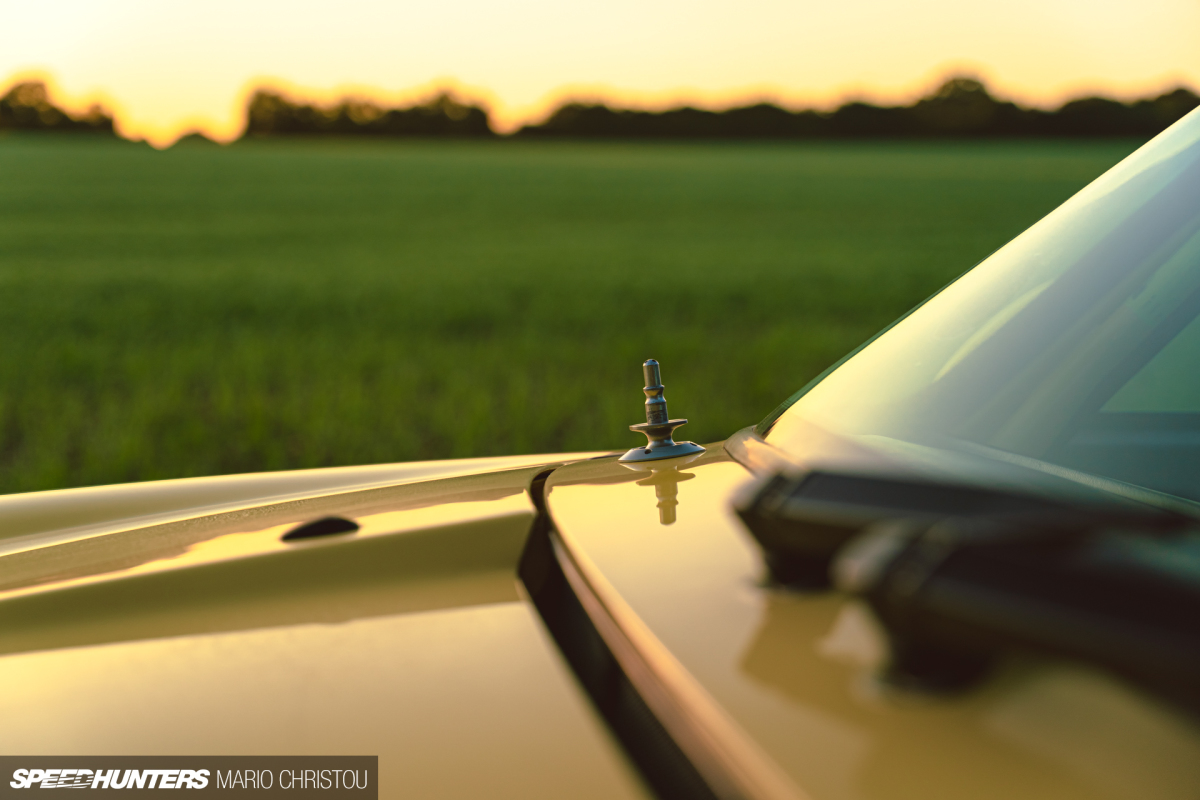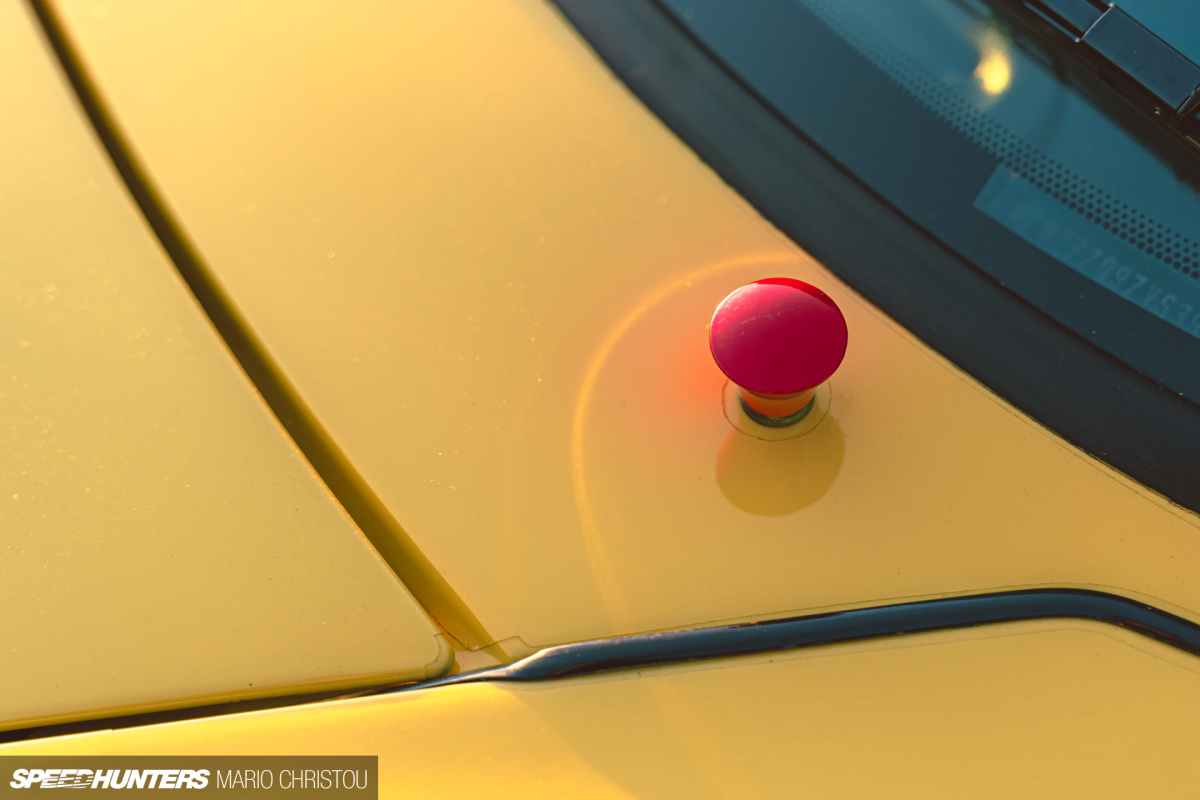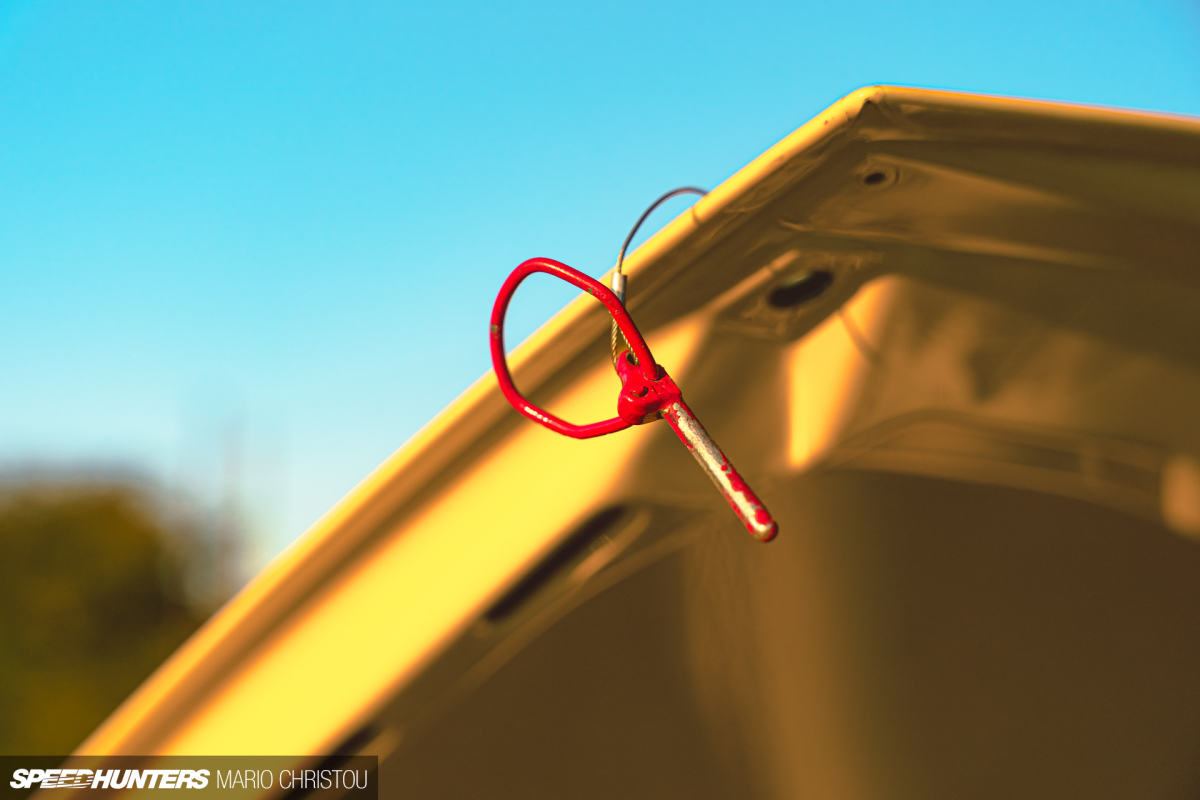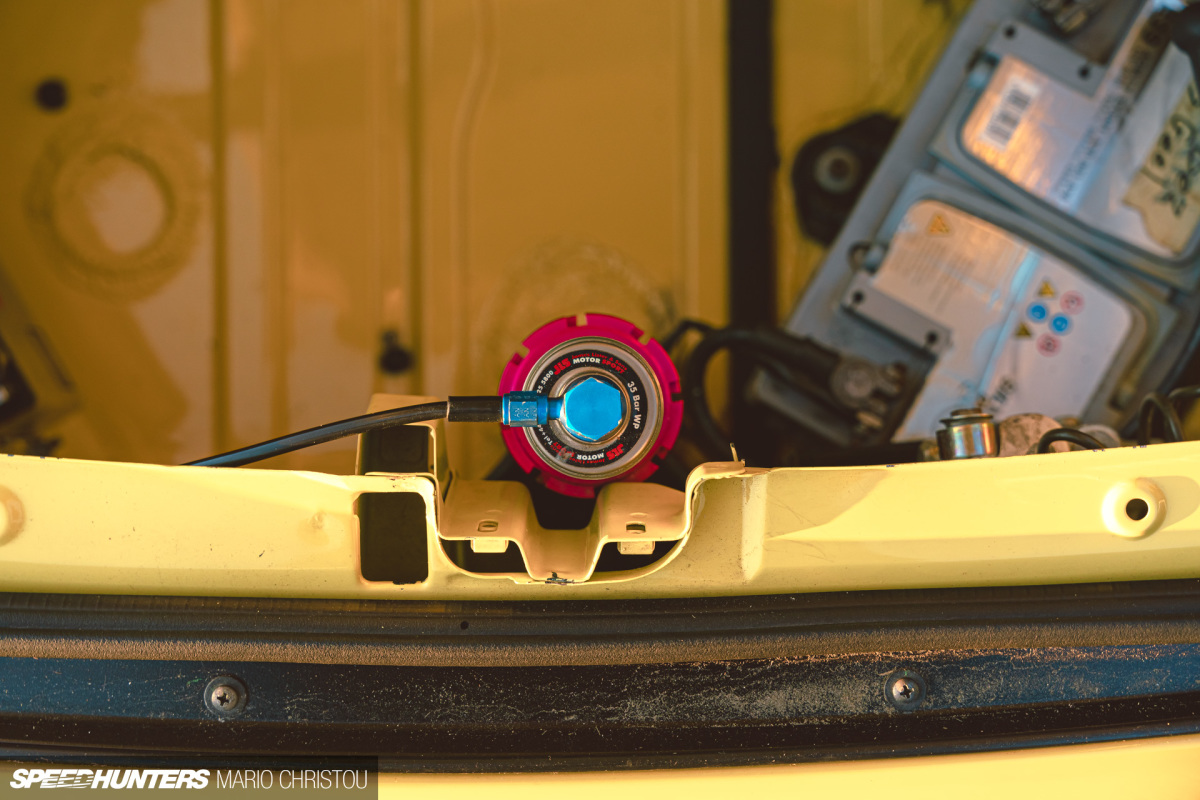I’m about to spend the next almost thousand words trying to convey how incredible Paul McLean’s 993 Porsche 911 RSR is.
I will undoubtedly fall short – not for lack of talent, but because I wish more than ever that you, the readers, could experience a day like mine with this car. It’s not often I get so attached to a vehicle, but I have to admit this is in the top three cars I’ve ever seen.
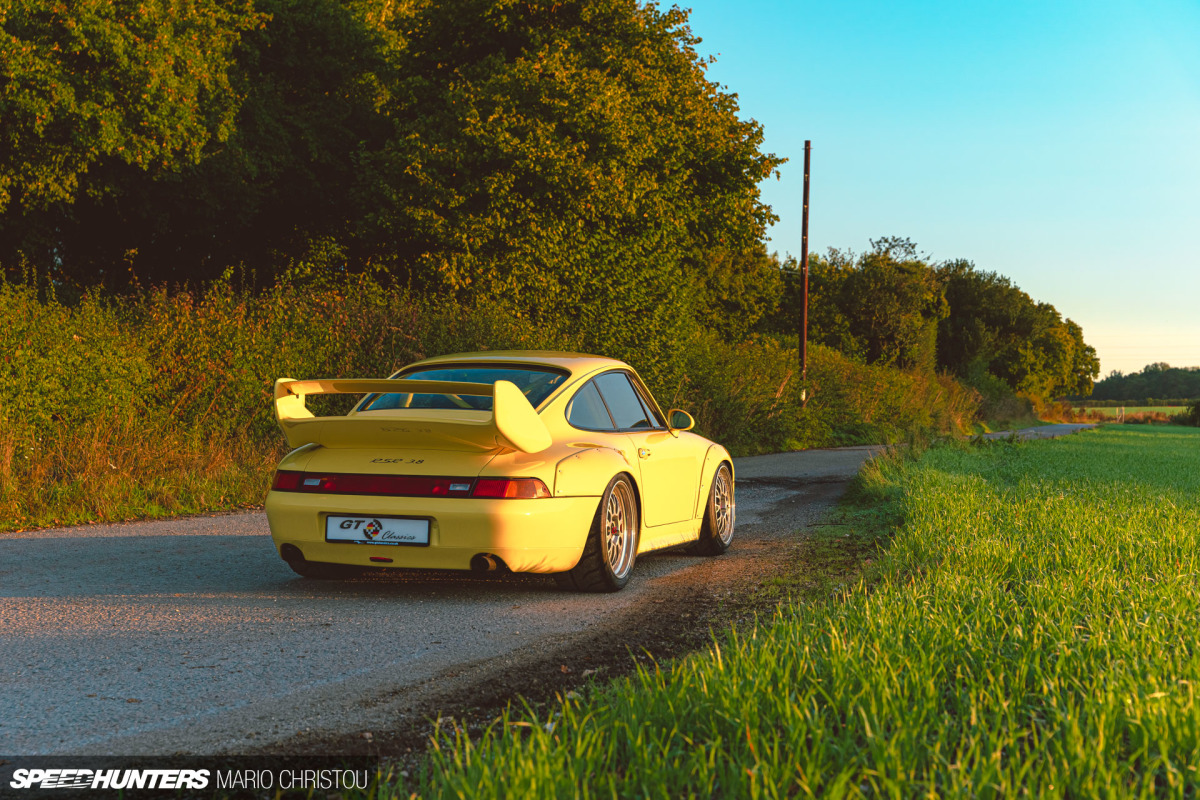
Right. Back to business: time for a serious Porsche history lesson…
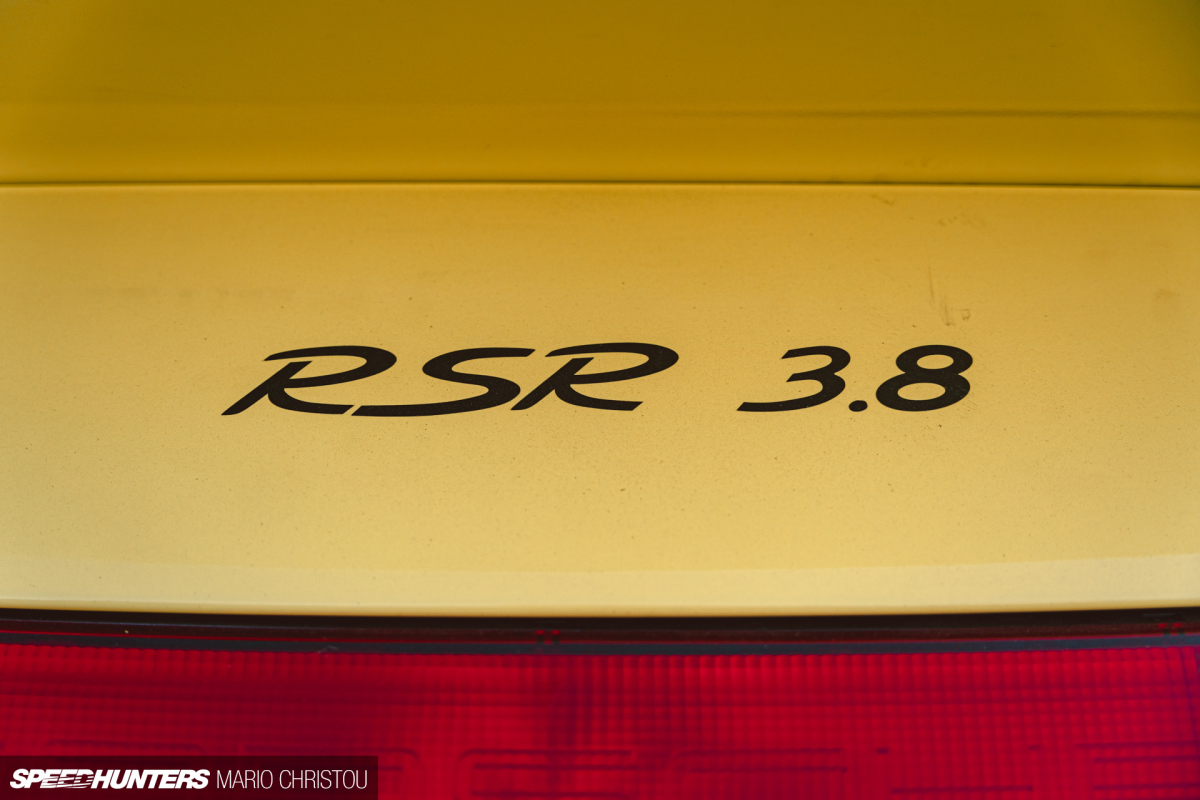
Right. Back to business: time for a serious Porsche history lesson…
The RSR emblem has an almost mythical status, a status you will never find on a Porsche road car. Why? Because RSR stands for ‘RennSport Rennwagen’ – ‘Motorsport Race Car’ in English. As extreme as the 992 GT3 RS is, it is still not a racing car.
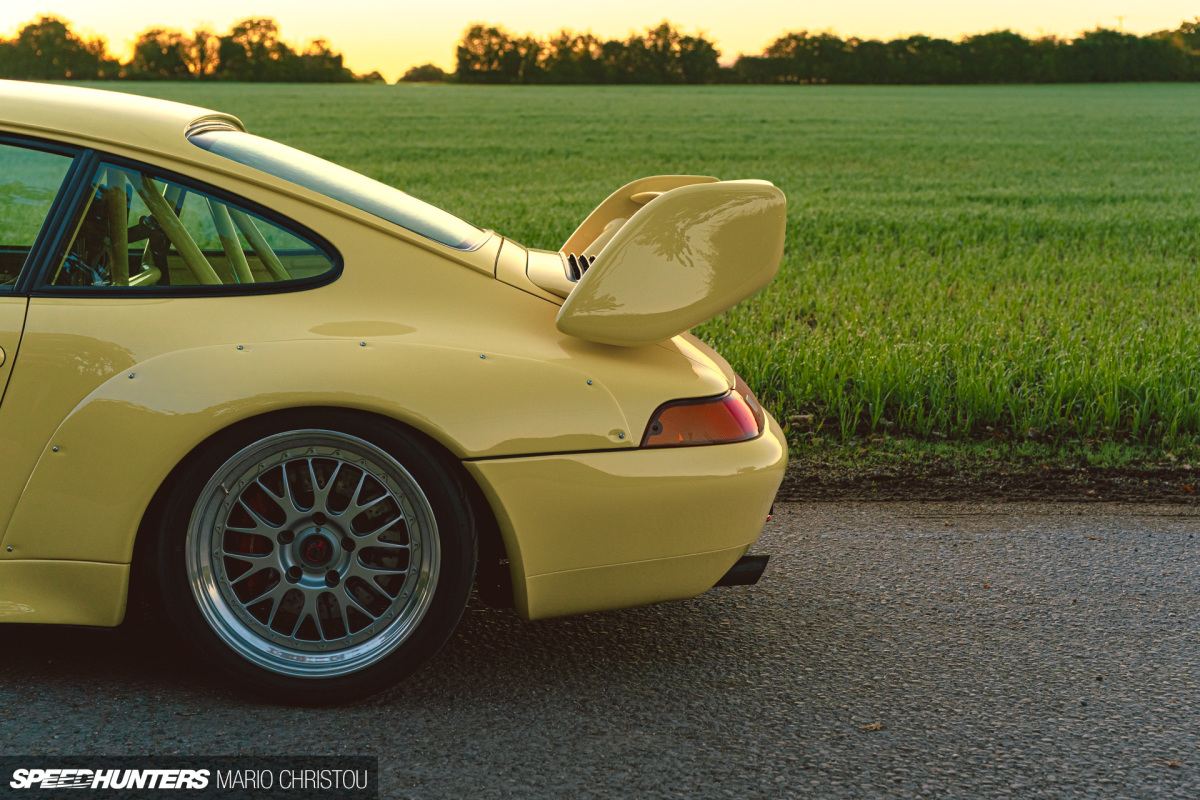
The heritage of the RSR dates back to 1973, when the 911 Carrera 2.8 RSR made its stellar debut in the IMSA (International Motor Sports Association) GT Series.

That Group 4-ready prototype led to a 3.0 version, then a turbocharged 2.1-liter model and more, getting wilder with each iteration. Turbocharged RSRs, now known for their deep bumpers and enormous wings (a far cry from the small ducktails the cars initially sported), have become Porsche racing icons.

Today you’ll find high-capacity six-cylinder engines in RSRs, competing on circuits around the world and often leading the way in GT3 racing. The Jägermeister and Brumos cars paved the way for modern titans such as Flying Lizard, Falken and Manthey Racing RSRs.

Although modern RSRs are technological marvels quite a far cry from the road-going 997s, 991s and 992s, the RSRs of the ’90s and early 2000s still bore a striking resemblance to their road-going versions underneath.

However, the 993 RSR is my choice. It sits perfectly in the middle, on the border between race car and road car – and that’s important.

The saying ‘Win on Sunday, sell on Monday’ may not apply as strongly to a Porsche as any touring car model, but a vehicle that looks like something you see on the street really does look better on the track.
And that makes the 993 RSR so special. It wears the bolt-on overfenders of the 993 GT2, but has the narrow rear wing of the Supercup cars. You might be wondering: why not the GT2 wing? Well, the RSR is naturally aspirated, while the GT2’s raised trunk lid is designed to house the intercooler above the turbo engine.

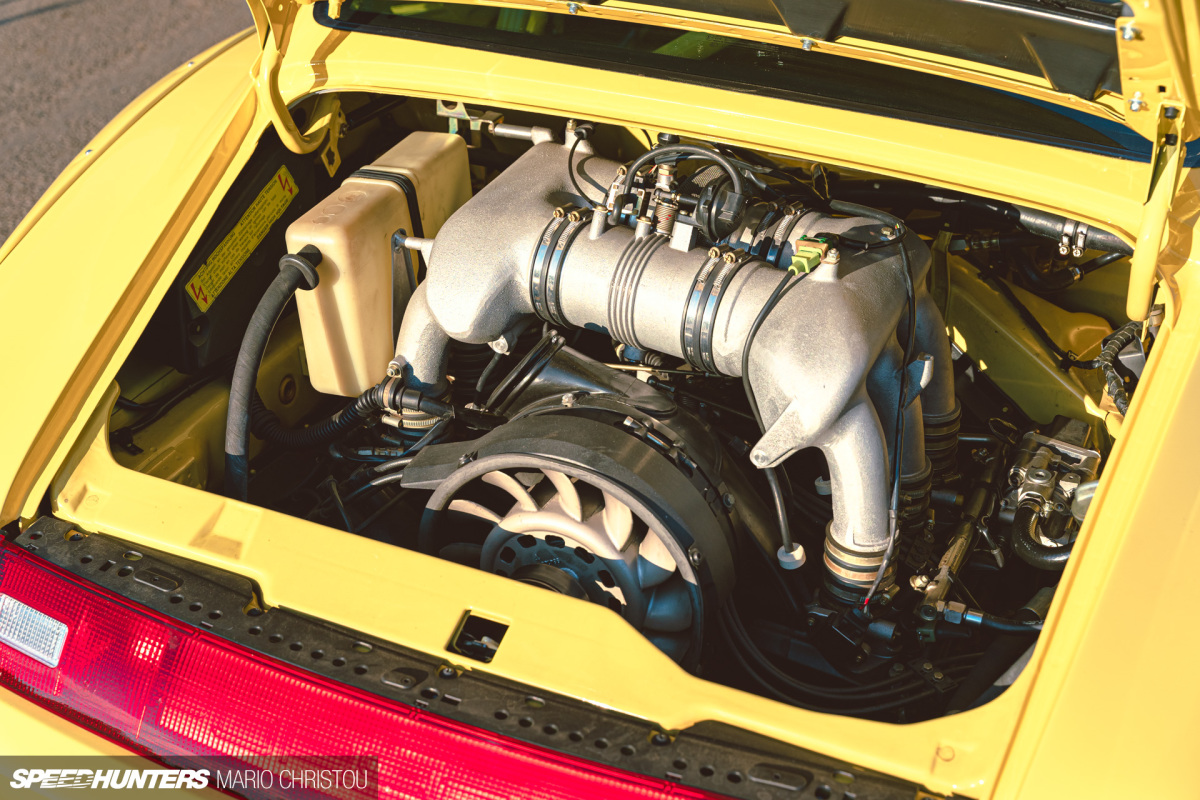
Don’t think for a second that this makes him any less animalistic; this car is a monster in itself.
The 3.8-litre M64/75 six-cylinder engine behind the rear axle of the RSR is a weapon tailor-made for the Cup 3.8 RSR models – not your ‘standard’ Cup cars. With a power of 345 hp and a modified G50/35 gearbox, the RSR is noticeably faster than the 993 Cup that preceded it.
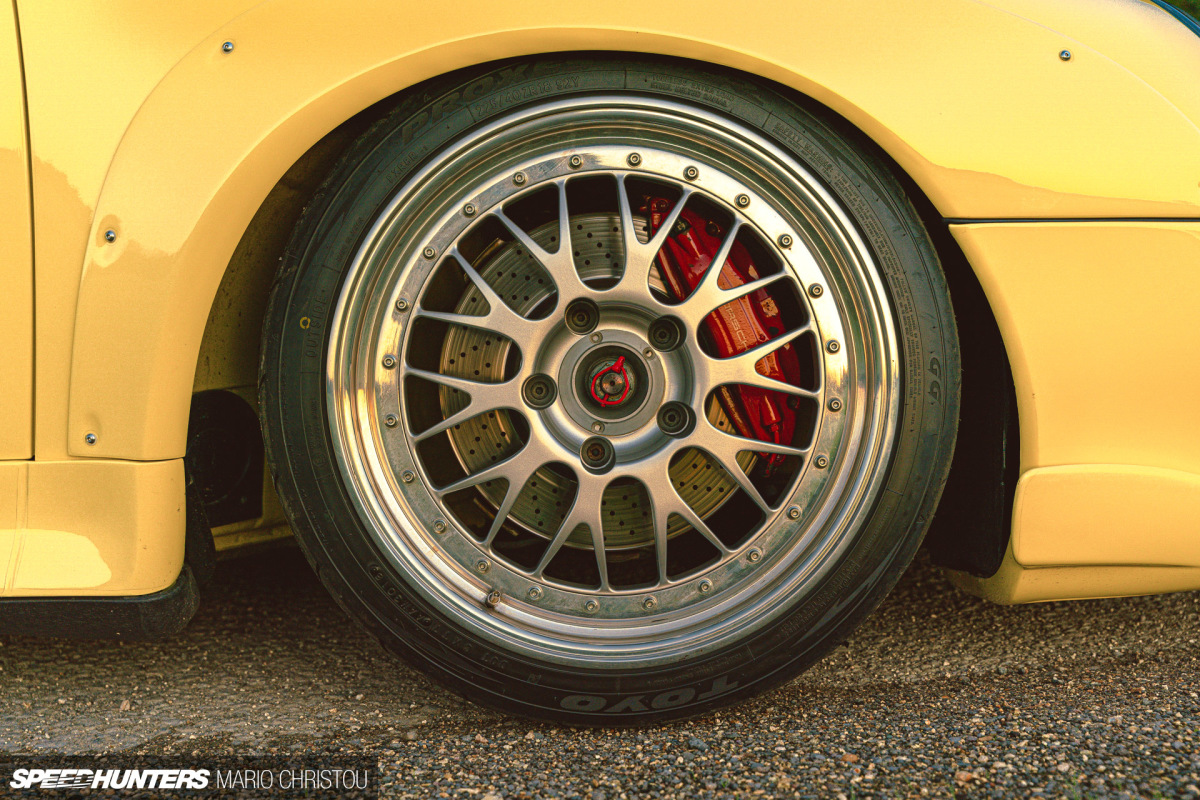
Under the GT2 bows, the RSR boasts several improvements over the road-going 993 and Cup cars. Behind the front BBS E82 wheels you’ll find 380mm GT2 brakes, and all four corners feature dual-adjustable Bilstein coilovers.
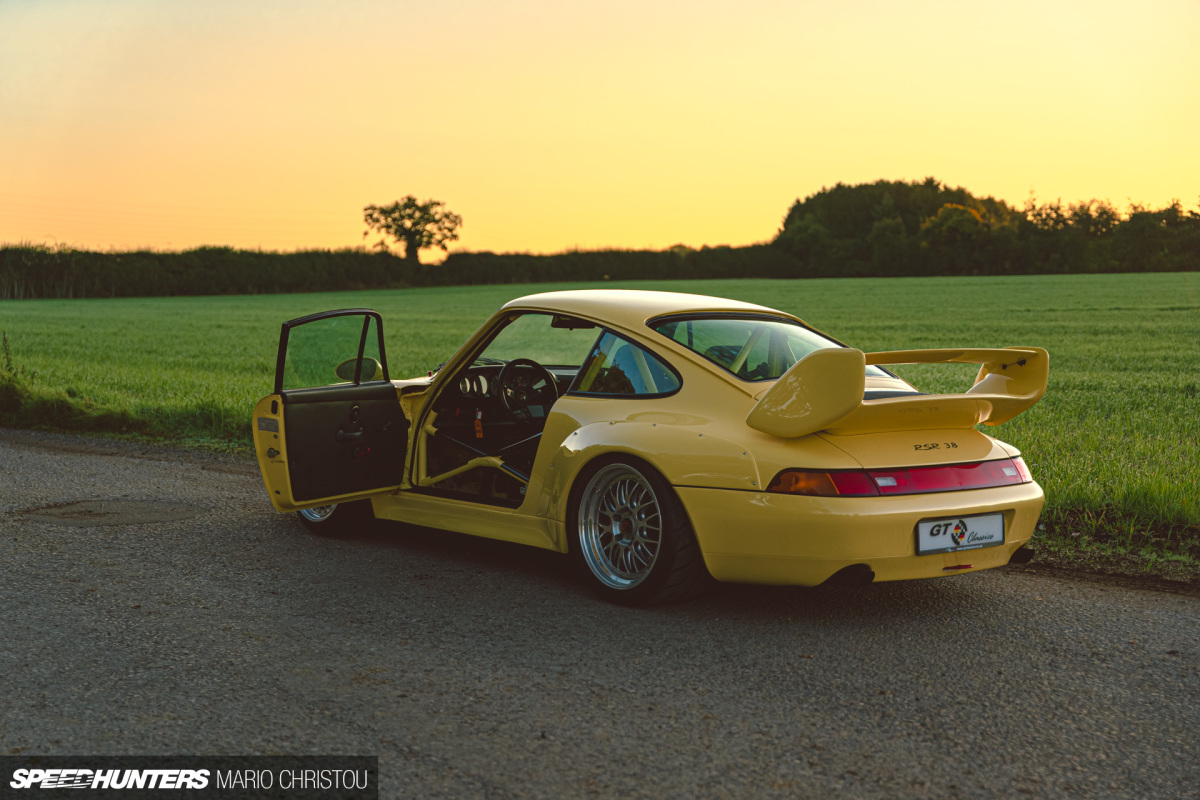
Paul’s car currently runs on Toyo Proxes R888R tires, but it would almost certainly have left the factory on Michelin slicks. The front roll bar can be adjusted from the cockpit, while chassis rigidity and safety are vastly improved by a multi-point roll cage.
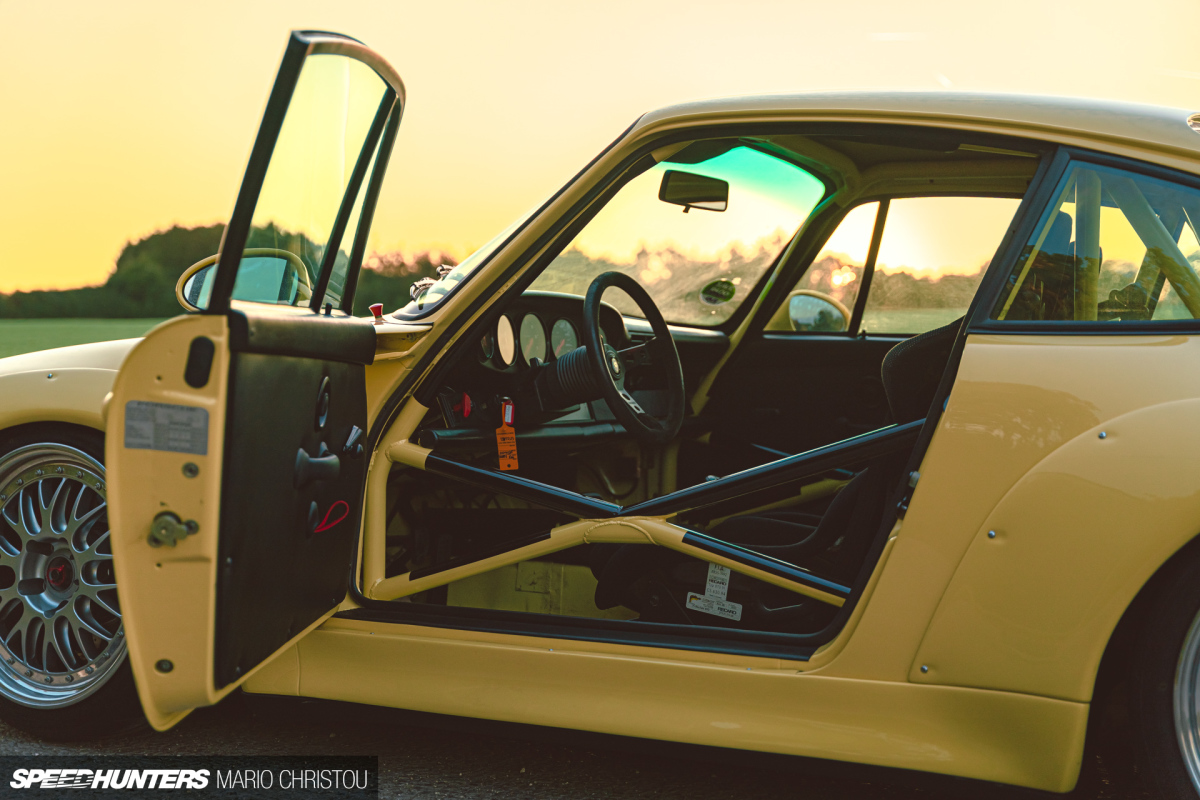
But why does the RSR exist at all, given its similarities to the 3.8 Cup?
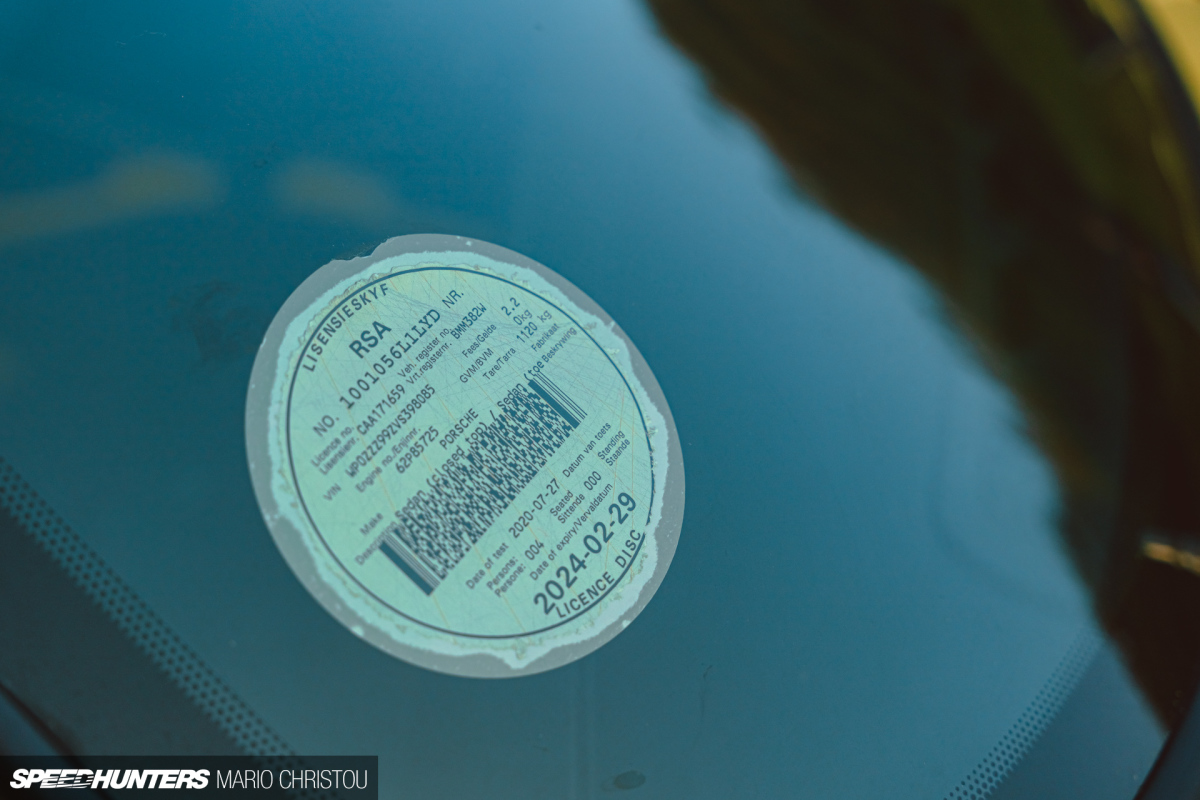
Of course you can romanticize it by saying: “Well, why wouldn’t it exist? Why would you even ask that?” But let’s think about it logically for a moment.

The Cup car is designed for ‘gentleman racers’ who compete on an equal Porsche playing field. The RSR, on the other hand, was built to win races against other GT cars, and purpose-built to be competitive in endurance racing right out of the box.
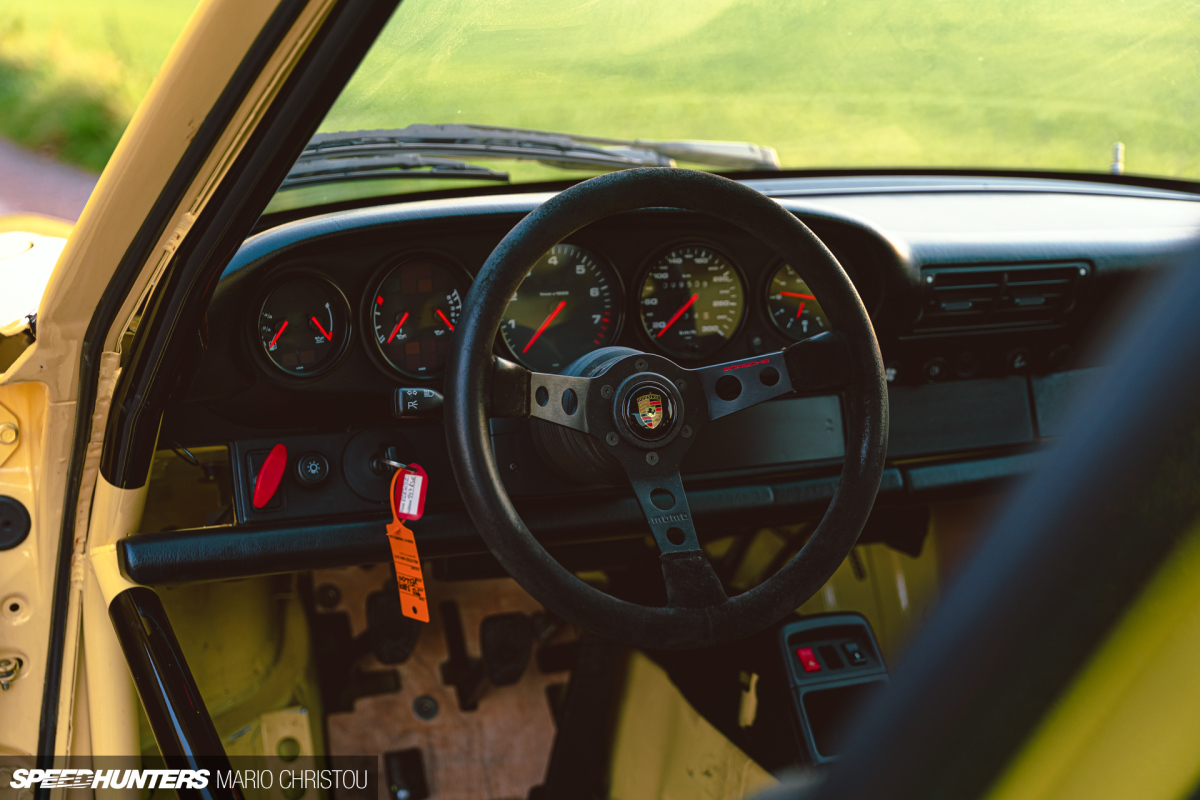
But despite the race-oriented upgrades and stripped-down character, the interior is a typical Porsche affair: elegant and sleek, without anything out of place. The one exception, at least in Paul’s car, is the passenger Recaro, which was added to match the driver’s seat.
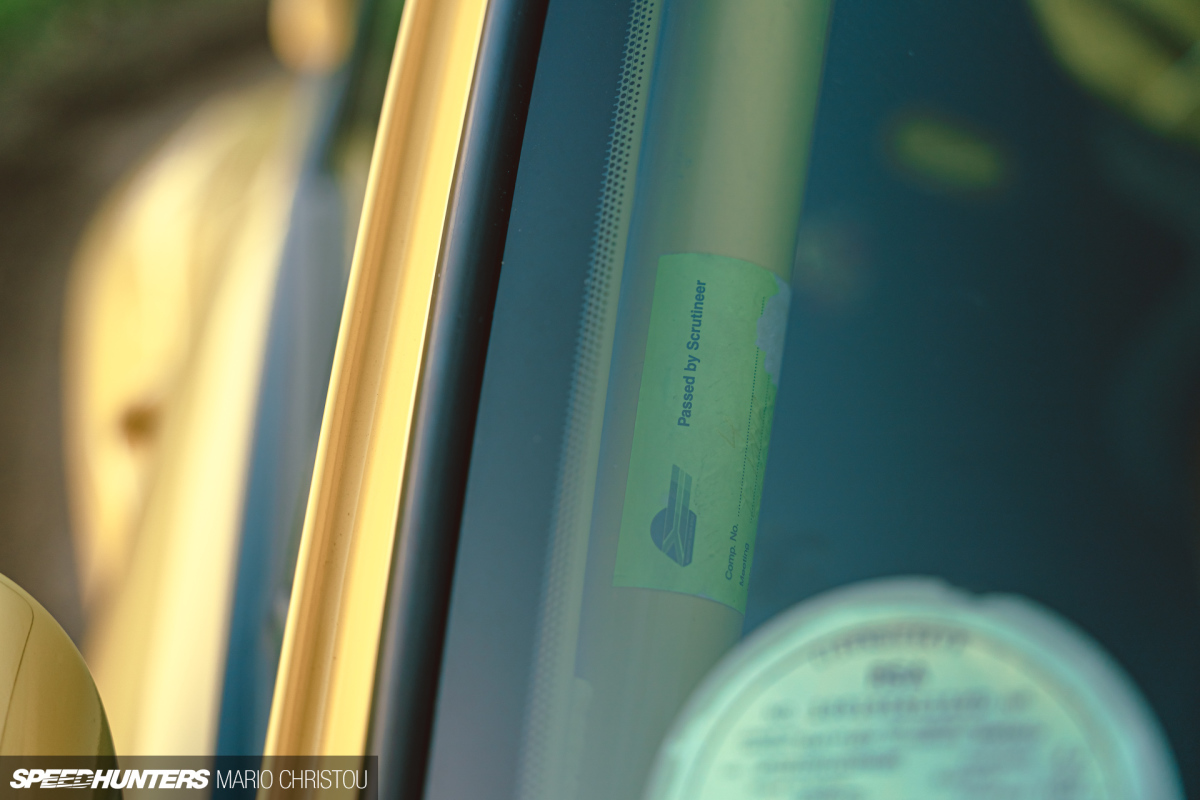
All 993 RSRs were originally fitted with a single Recaro racing seat – appropriate given its purpose as a race car – but Paul’s retrofitted passenger seat allowed me to experience his car on the road.
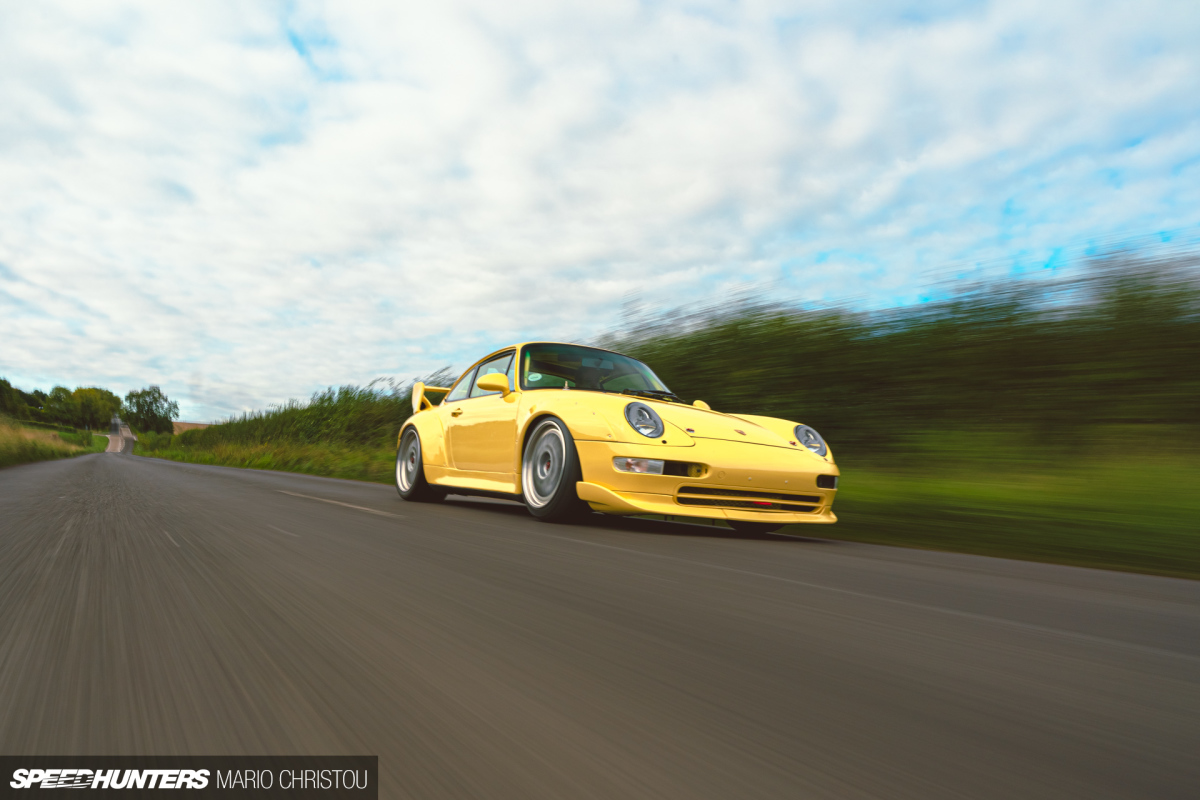
It’s a visceral experience, a far cry from any 993 I’ve driven. The fully rosette suspension and solidly mounted subframes clatter over every bump in the road.
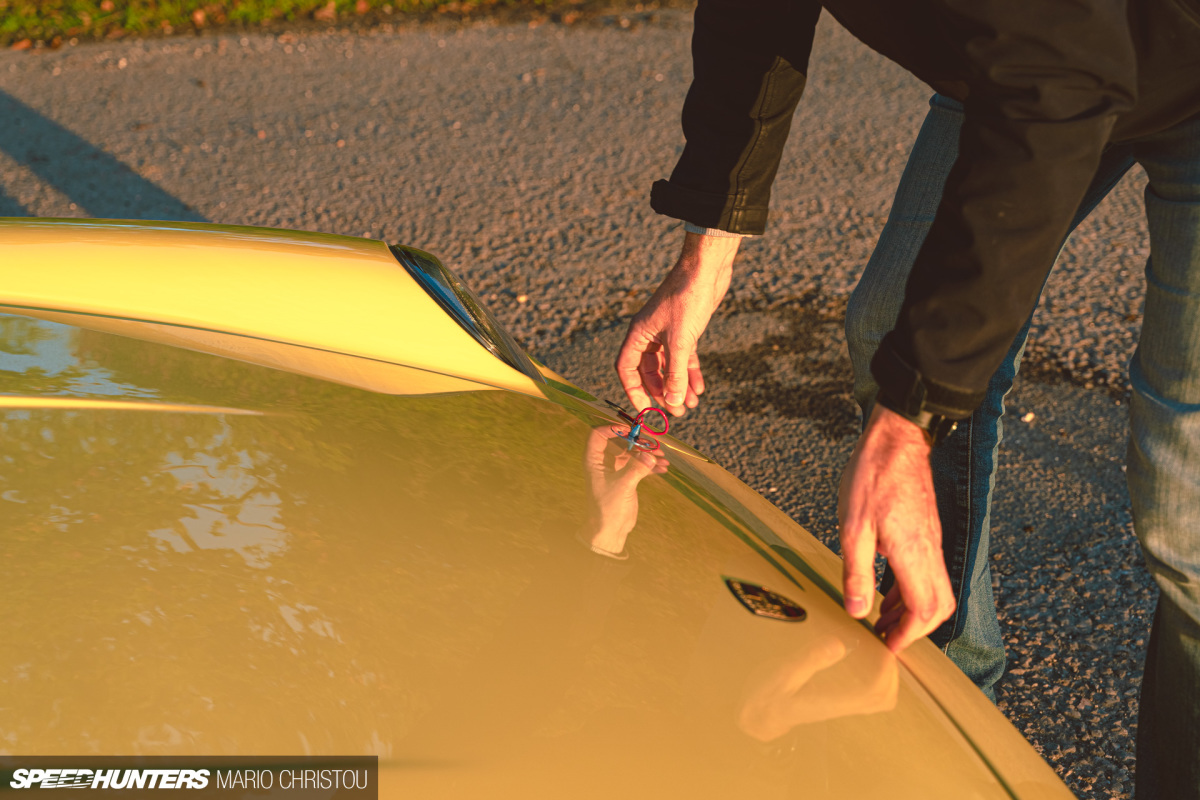
The complete lack of sound deadening has turned the cabin into an echo chamber. The engine noise? Incredible. Are noisy, but the real sensation comes from the vibrations that pulse through the gearbox and into your bones.
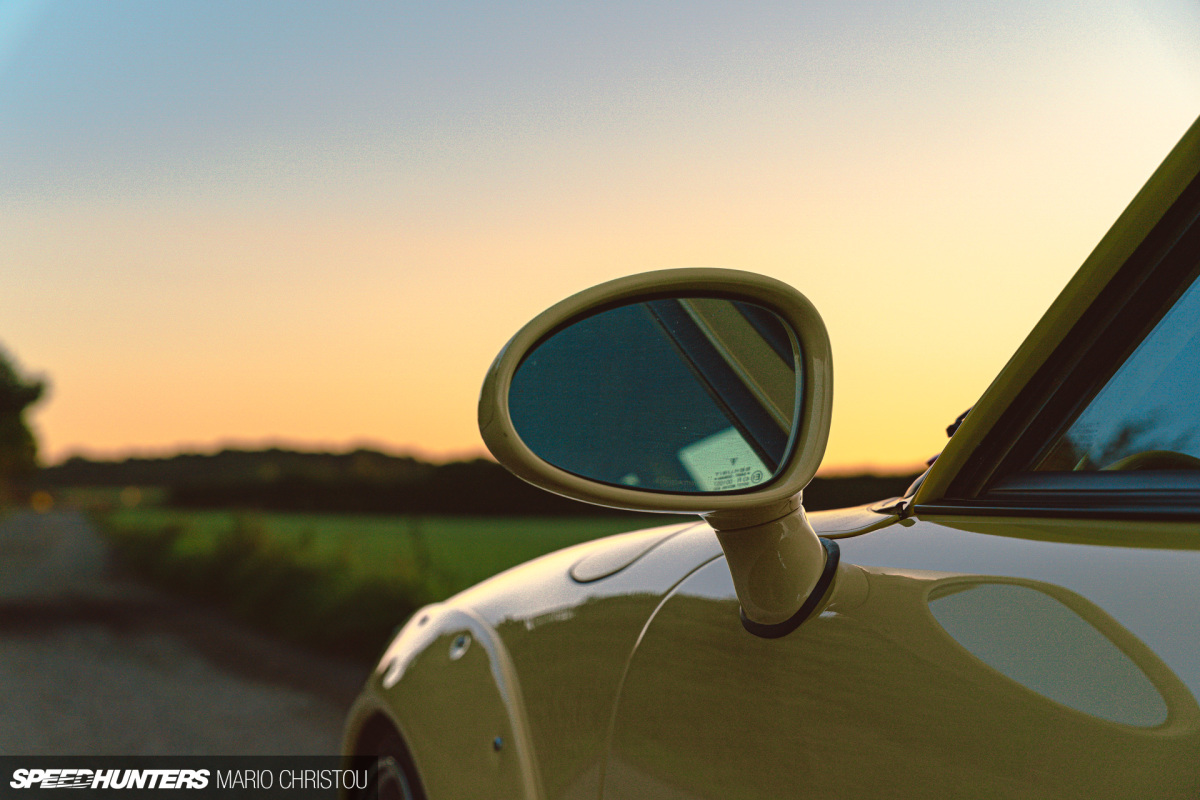
Funnily enough, under normal road conditions the brakes squeak so loudly that it sounds like you’re honking at the traffic in front of you. It’s a small but telling detail of how race-oriented this car is. But for all its race-ready eccentricities, track history and sheer rawness, there’s one thing about Paul’s 993 RSR that stands out more than anything else: the color.

Only 45 993 Cup 3.8 RSRs were produced between 1997 and 1998, and Paul’s is the only one finished in pastel yellow.

This South African model was a special car (as if they aren’t special…). This South African model was purchased by a dealer who wanted a striking car to show his status.

What better way to do that than by commissioning a real race car to drive on the road, painted in one of the softest, most beautiful and least aggressive colors Porsche had to offer?
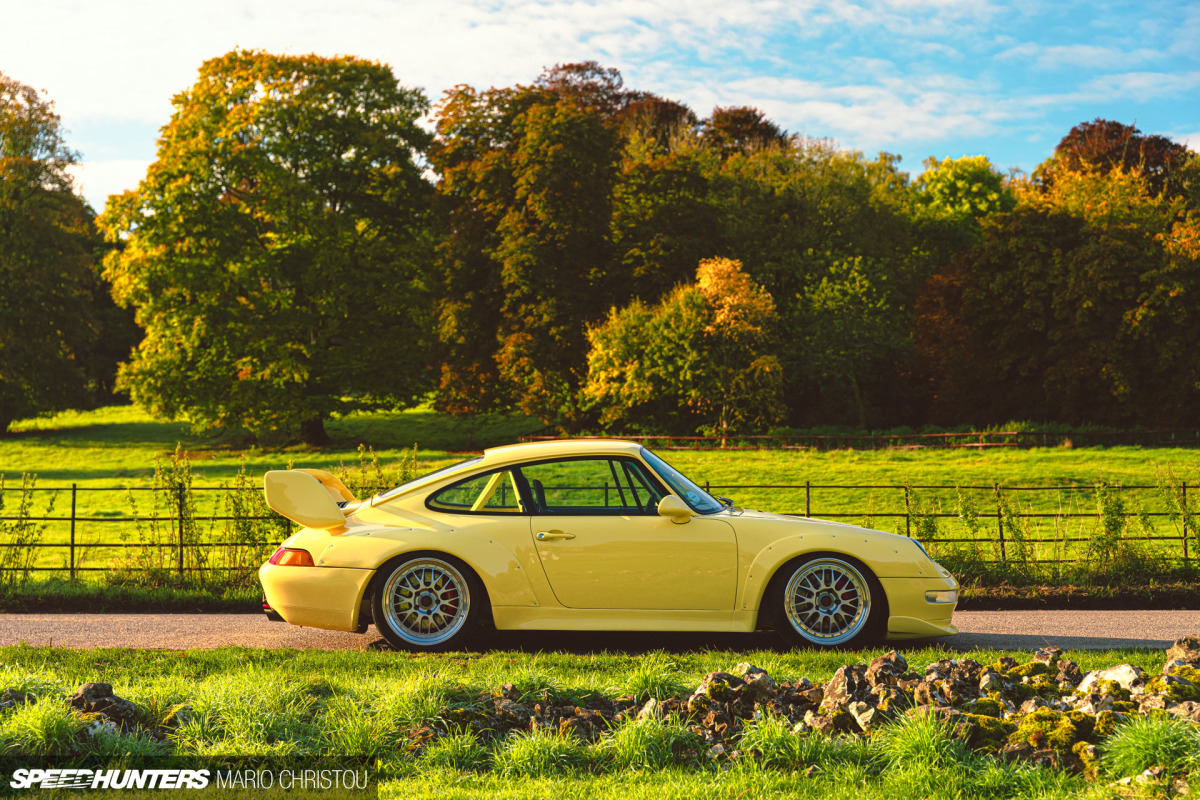
Paul’s 993 RSR is more than just an extraordinary car; it’s a rolling piece of Porsche history with an incredible backstory. As a Porsche enthusiast, I long for it to be in my collection – not just to drive, but also to admire.

Unfortunately, I don’t have £275,000 (US$350,000) in my bank account. But if you have that kind of money, then this RSR can be yours. After all, it’s for sale…
Mario Christou
Instagram: mcwpn, mariochristou.world
mariochristou.world

